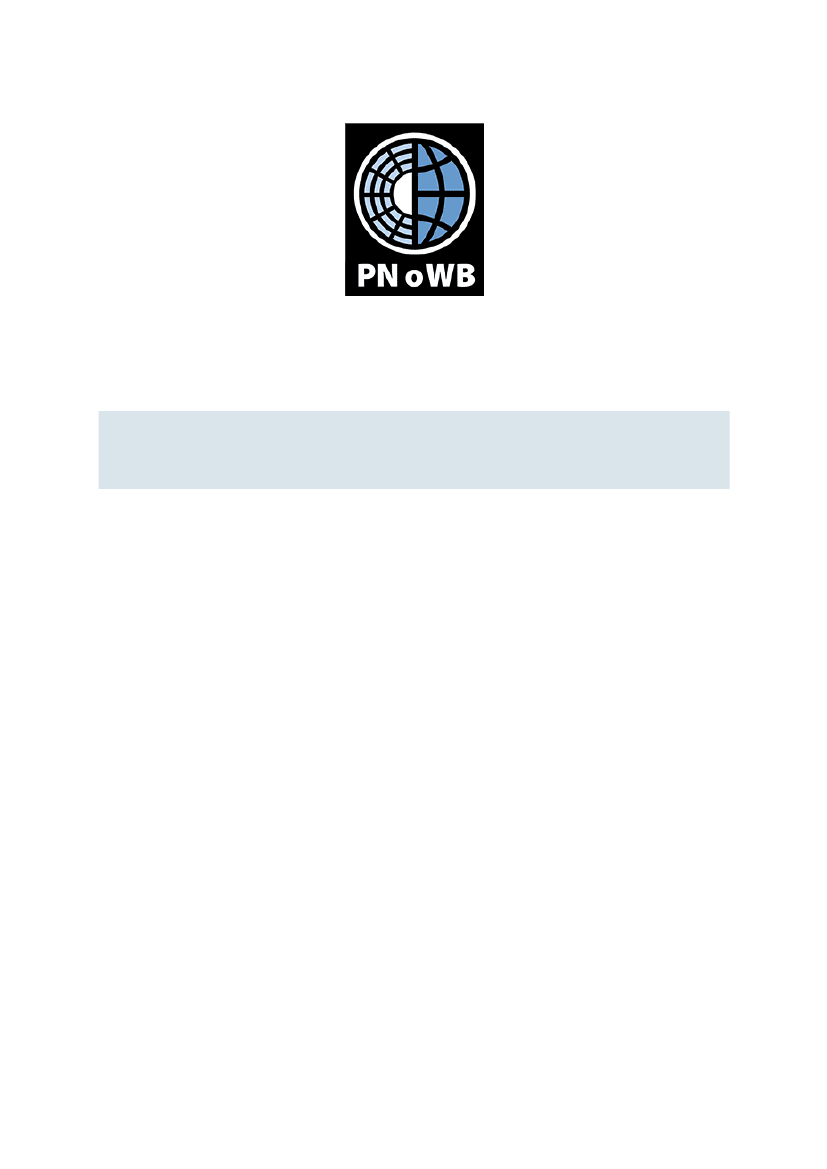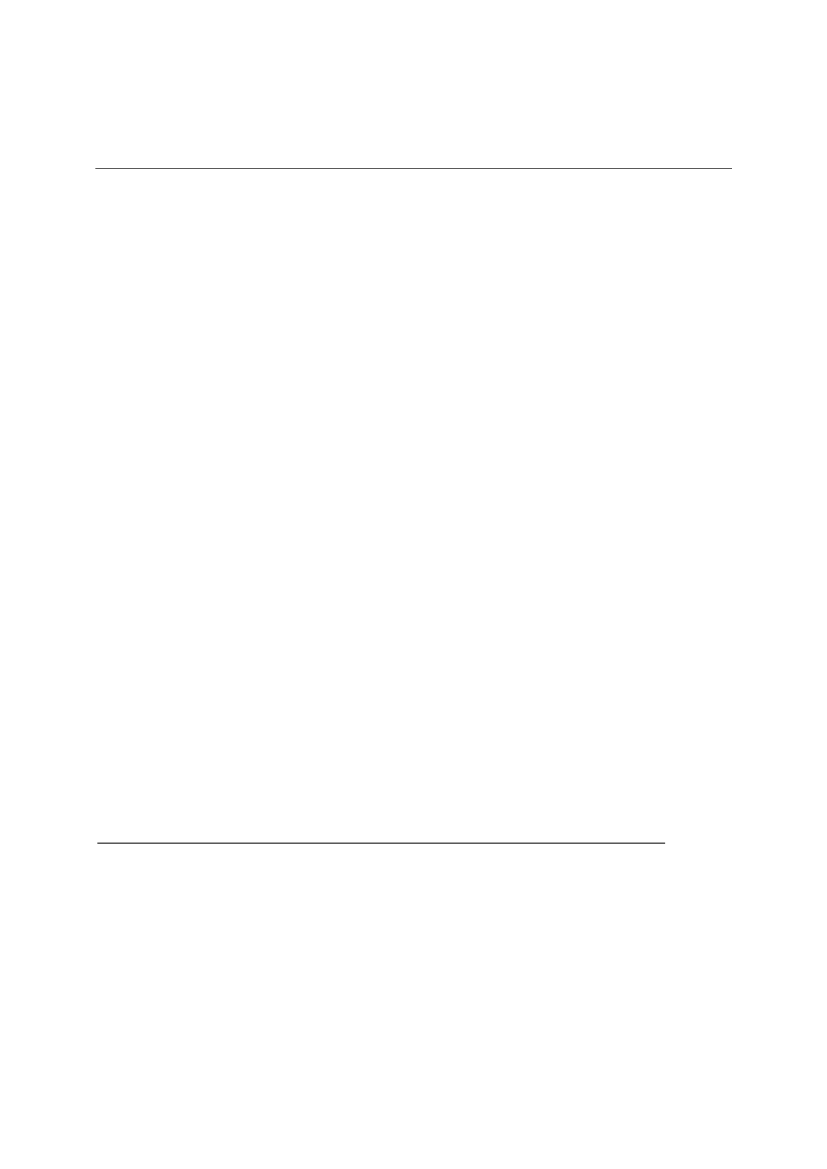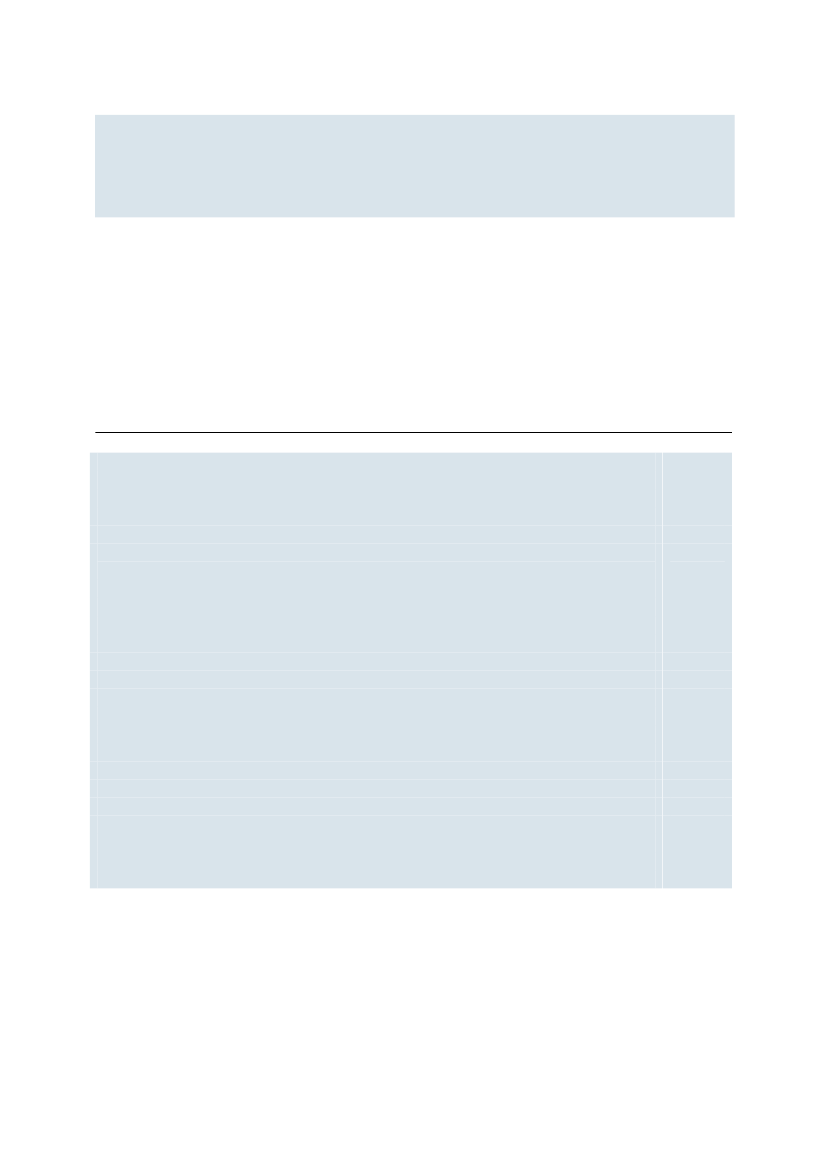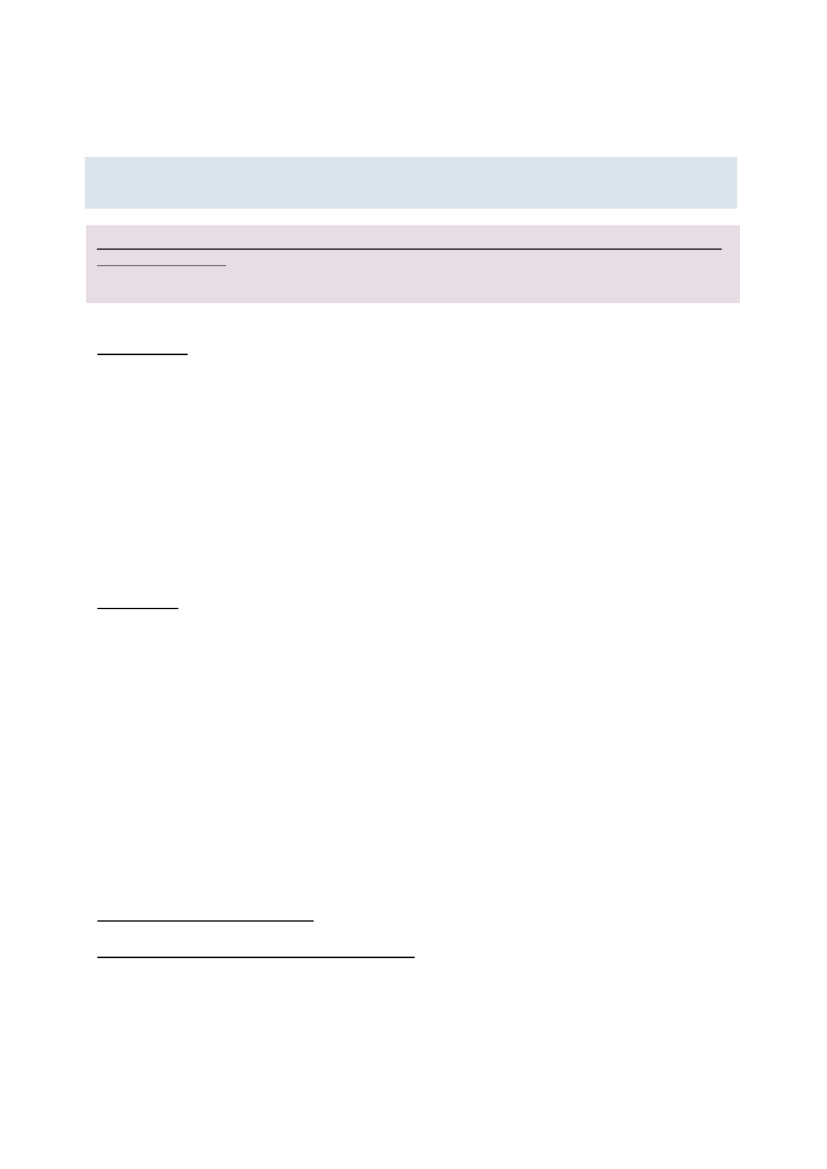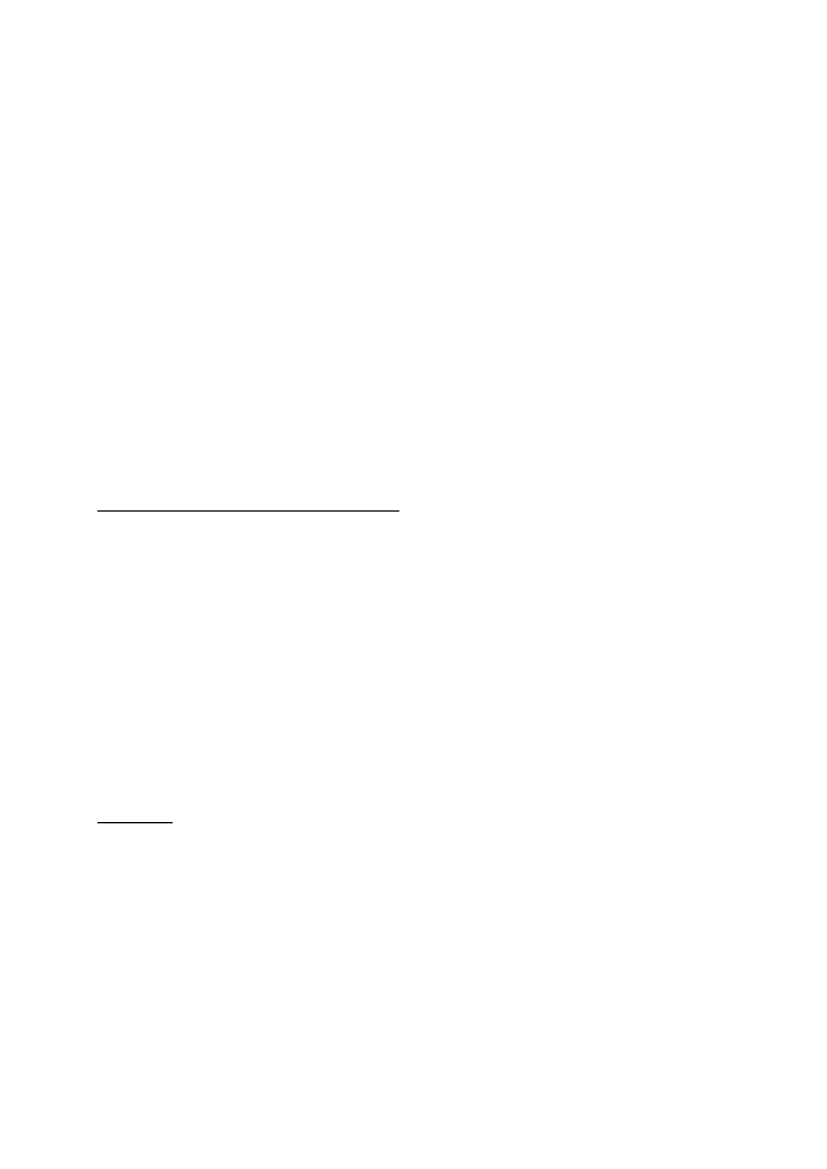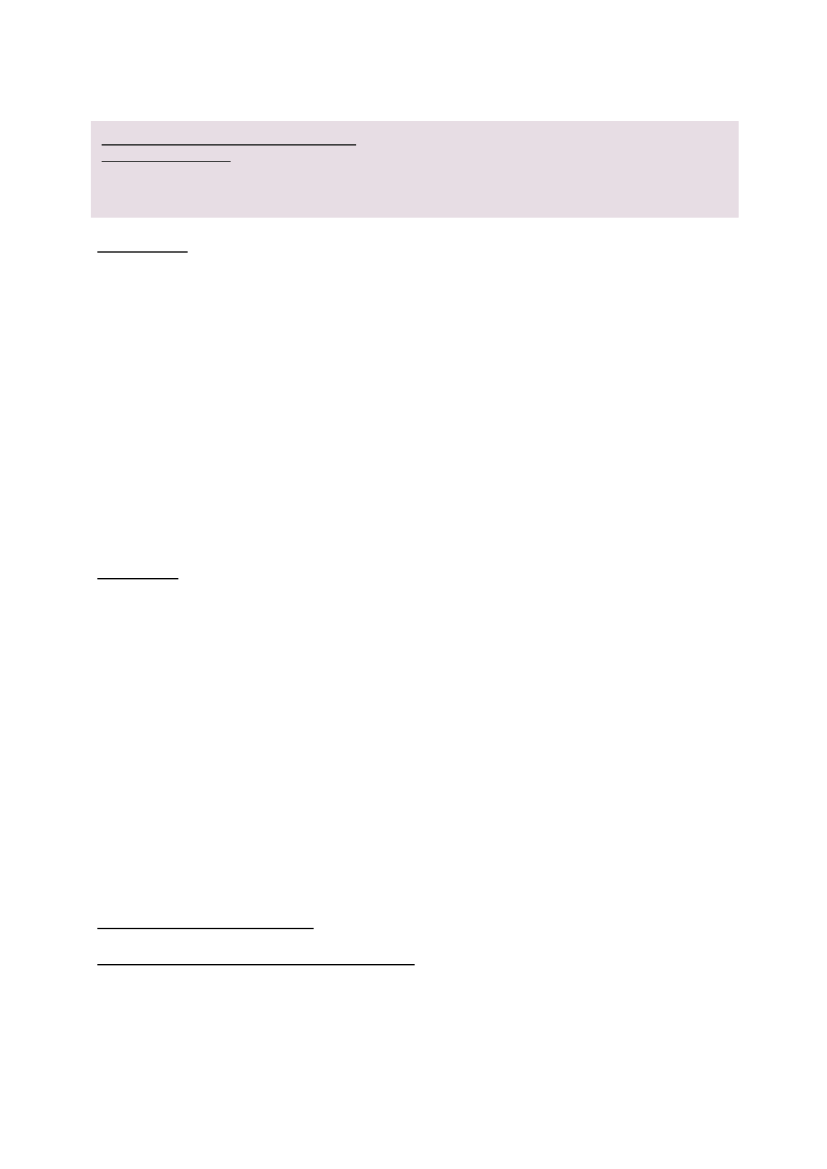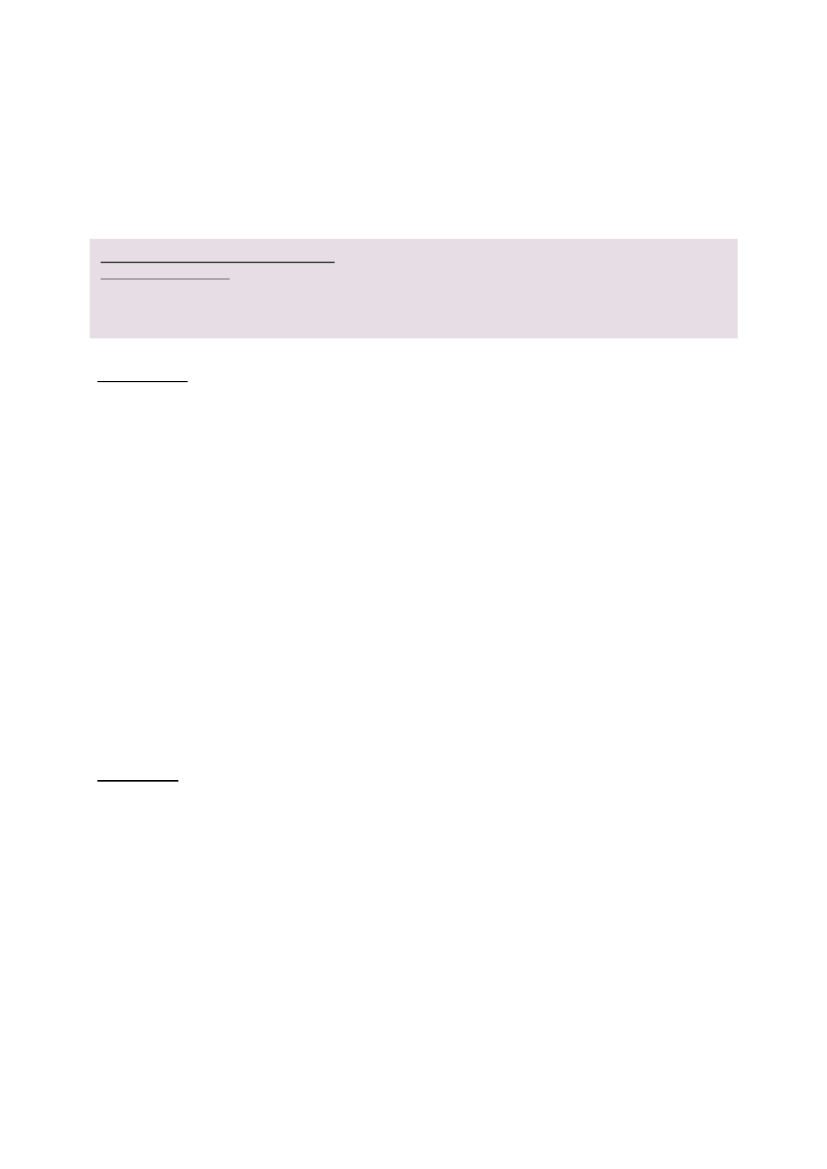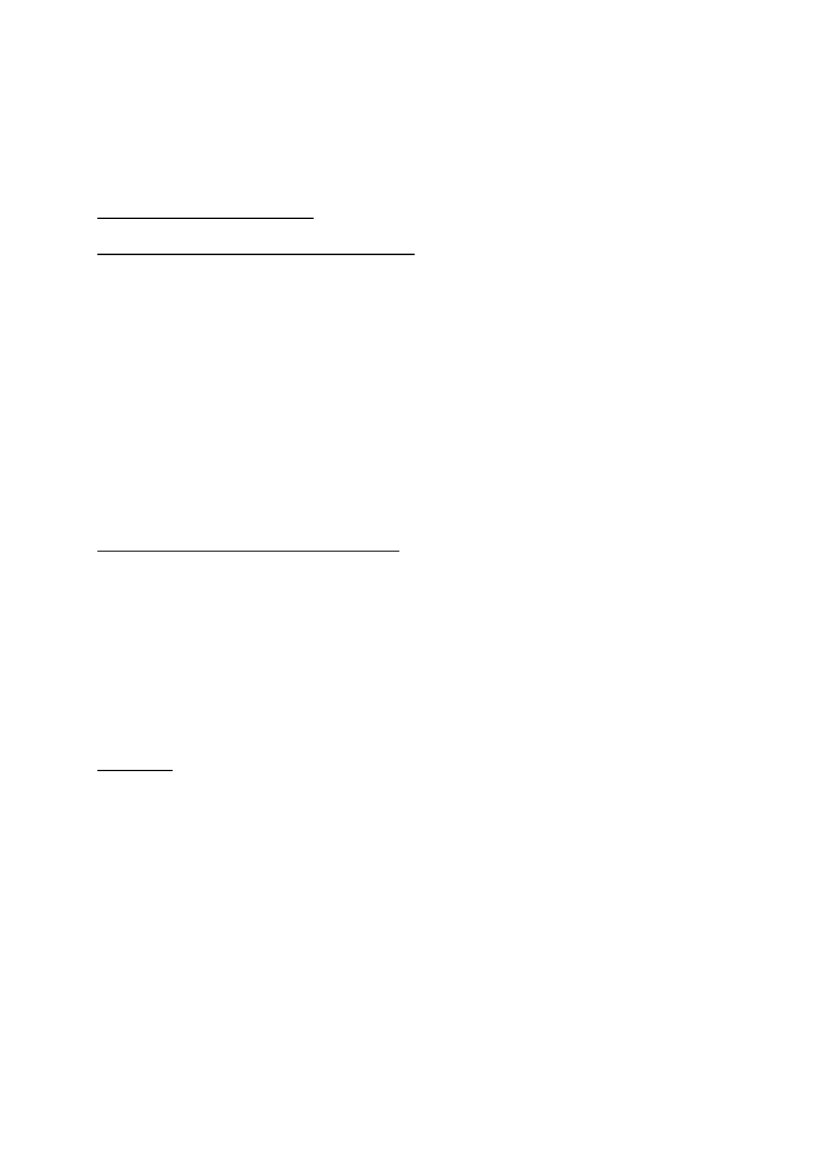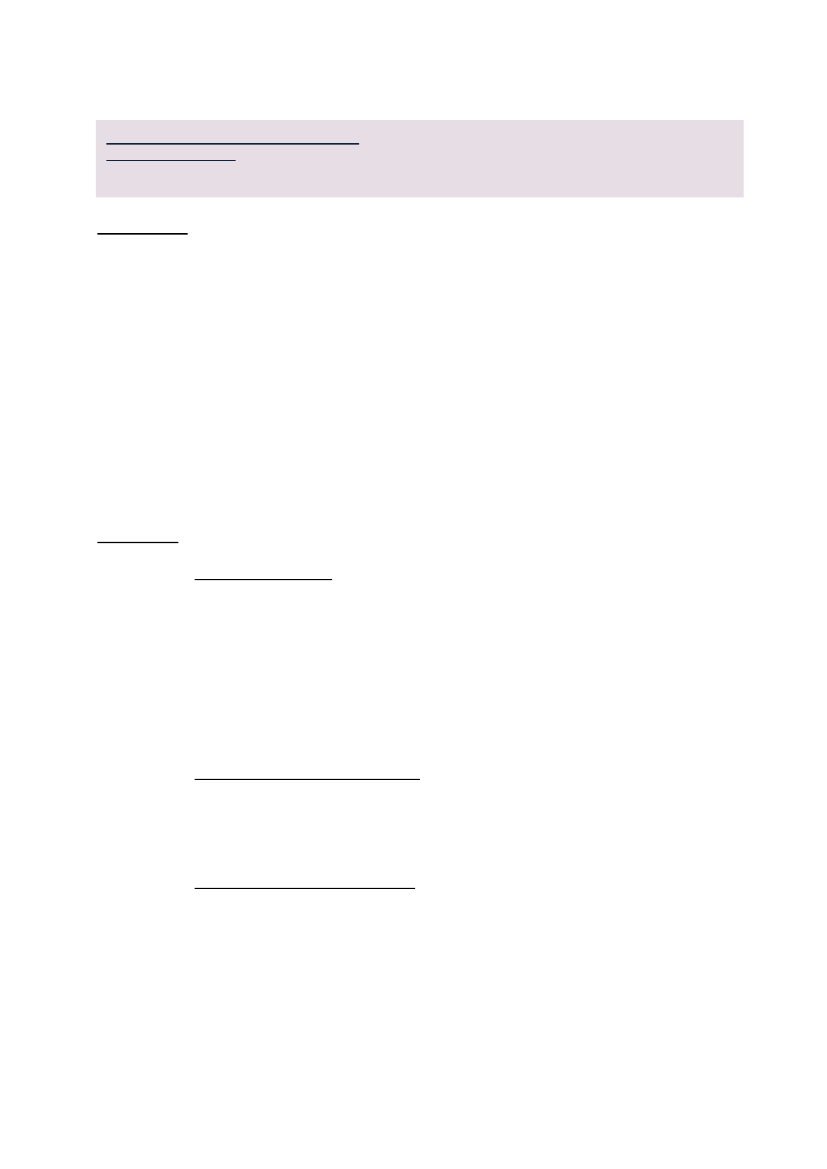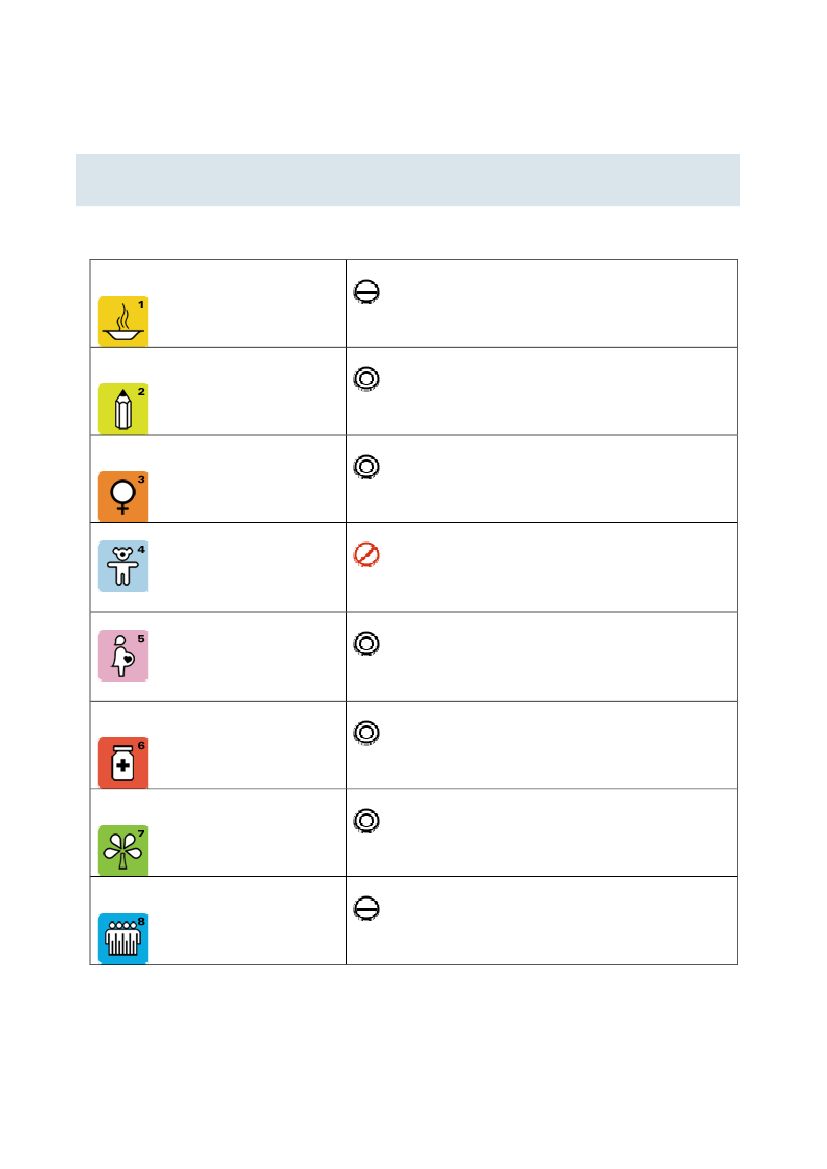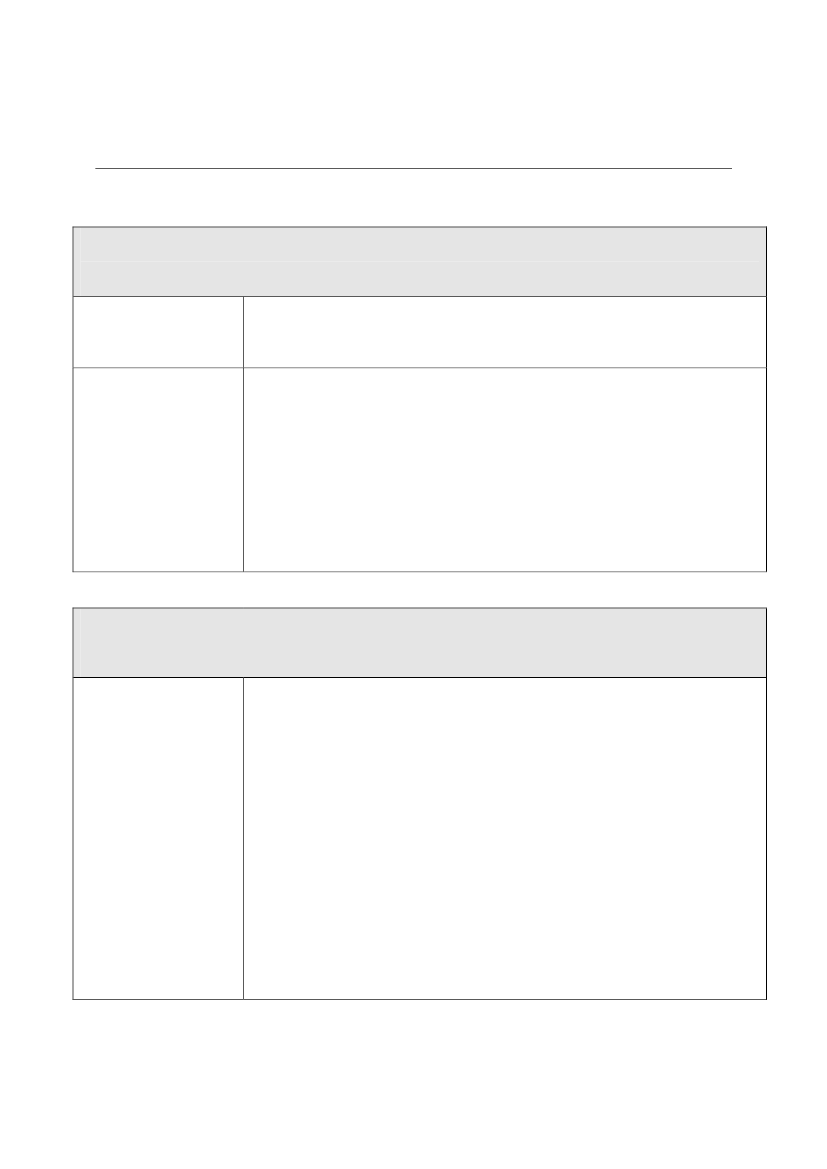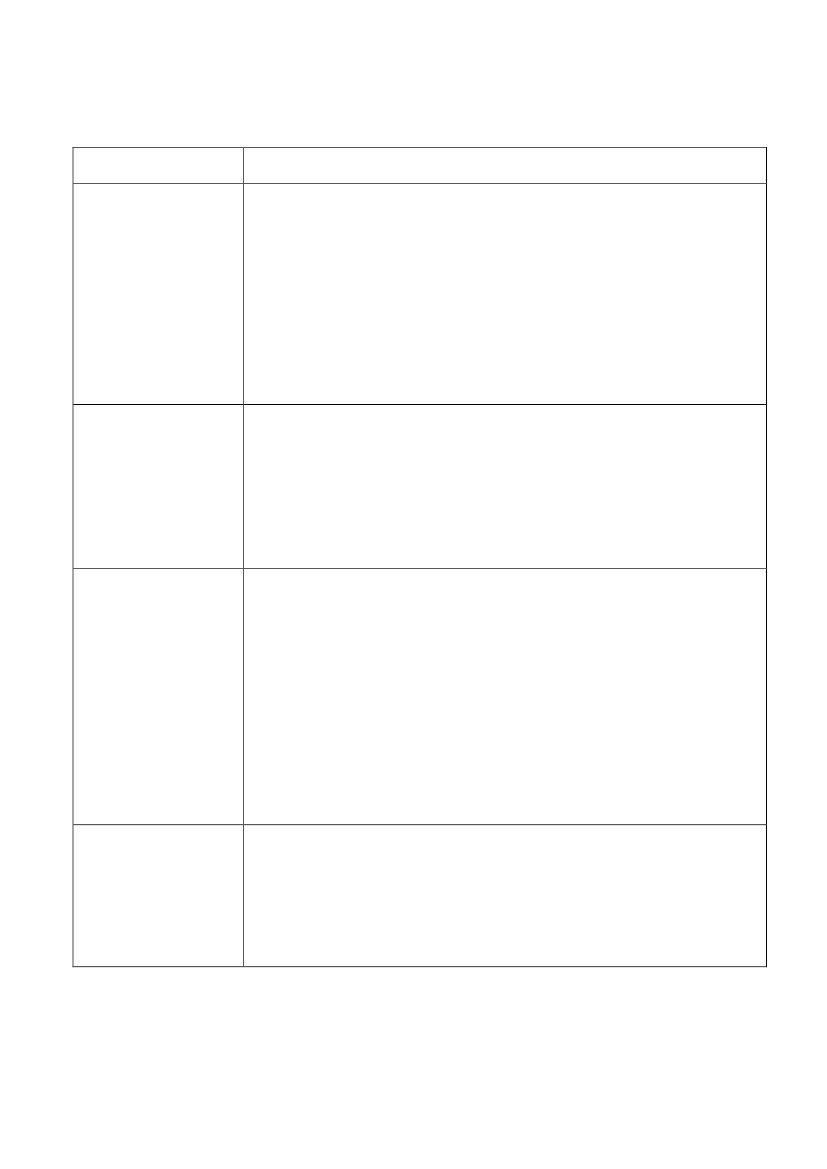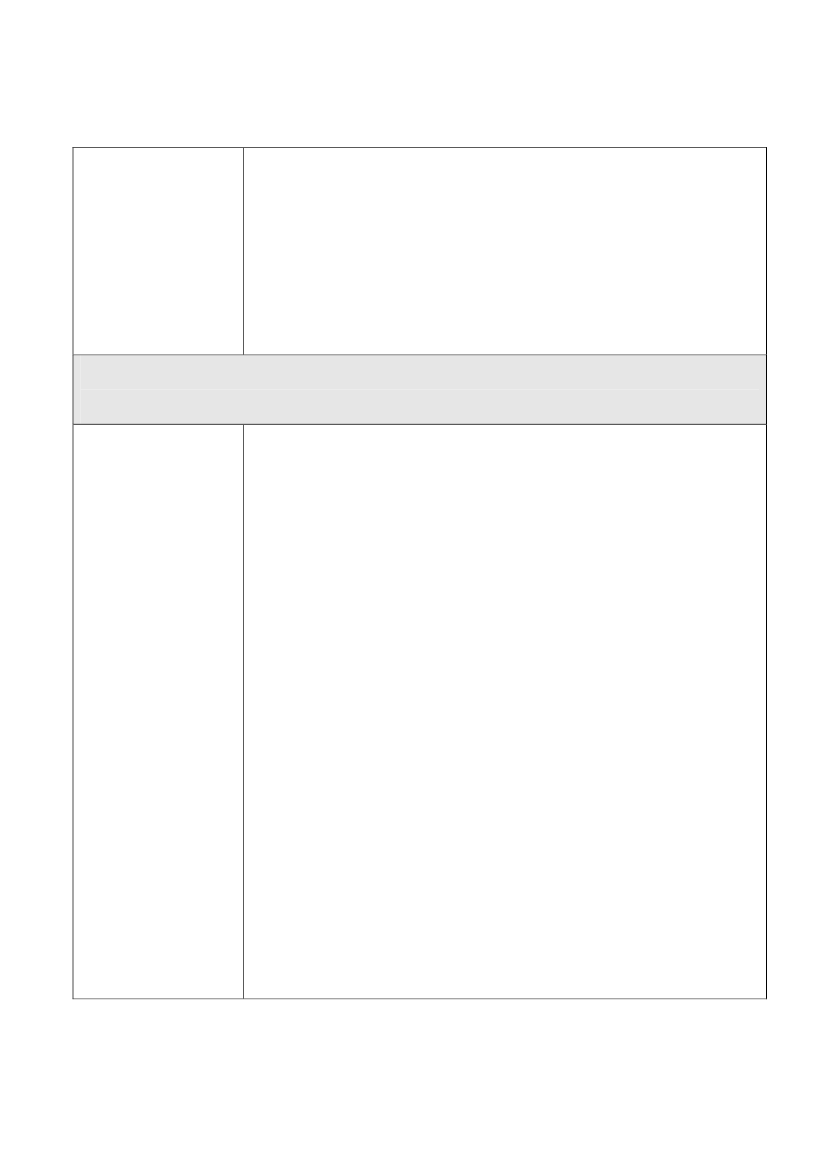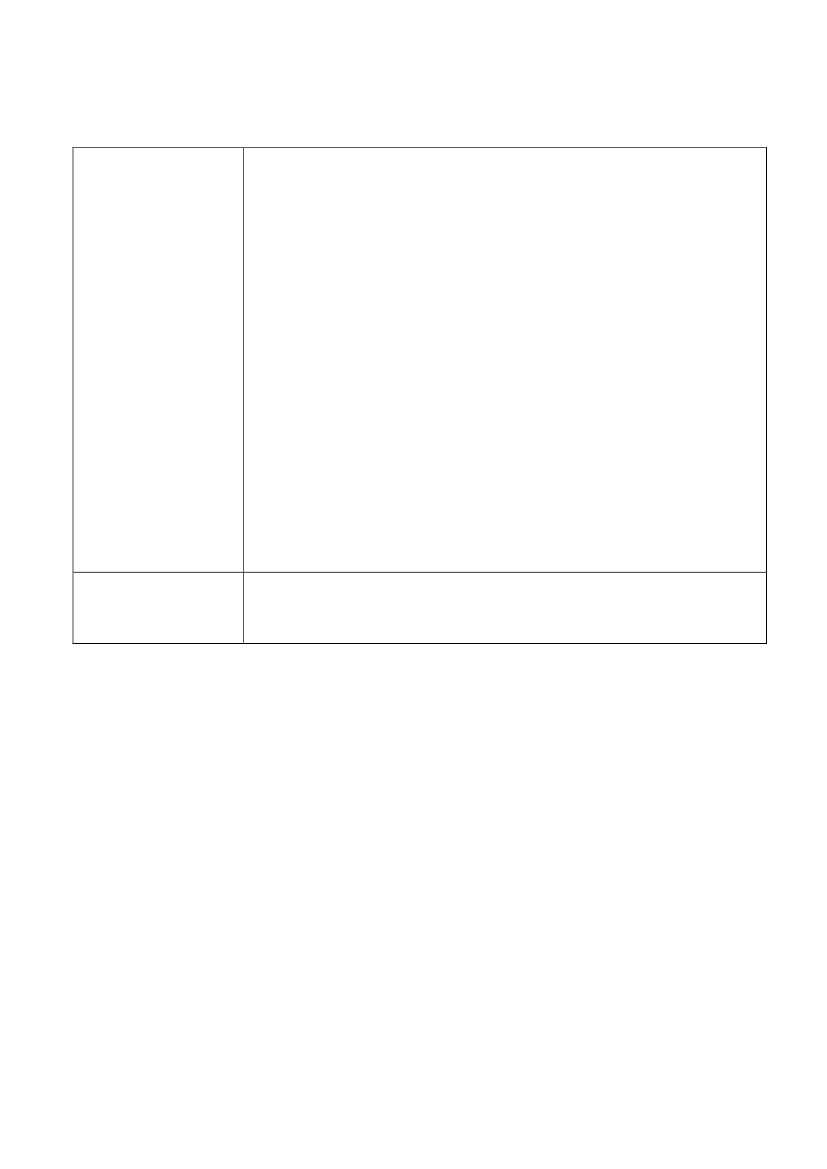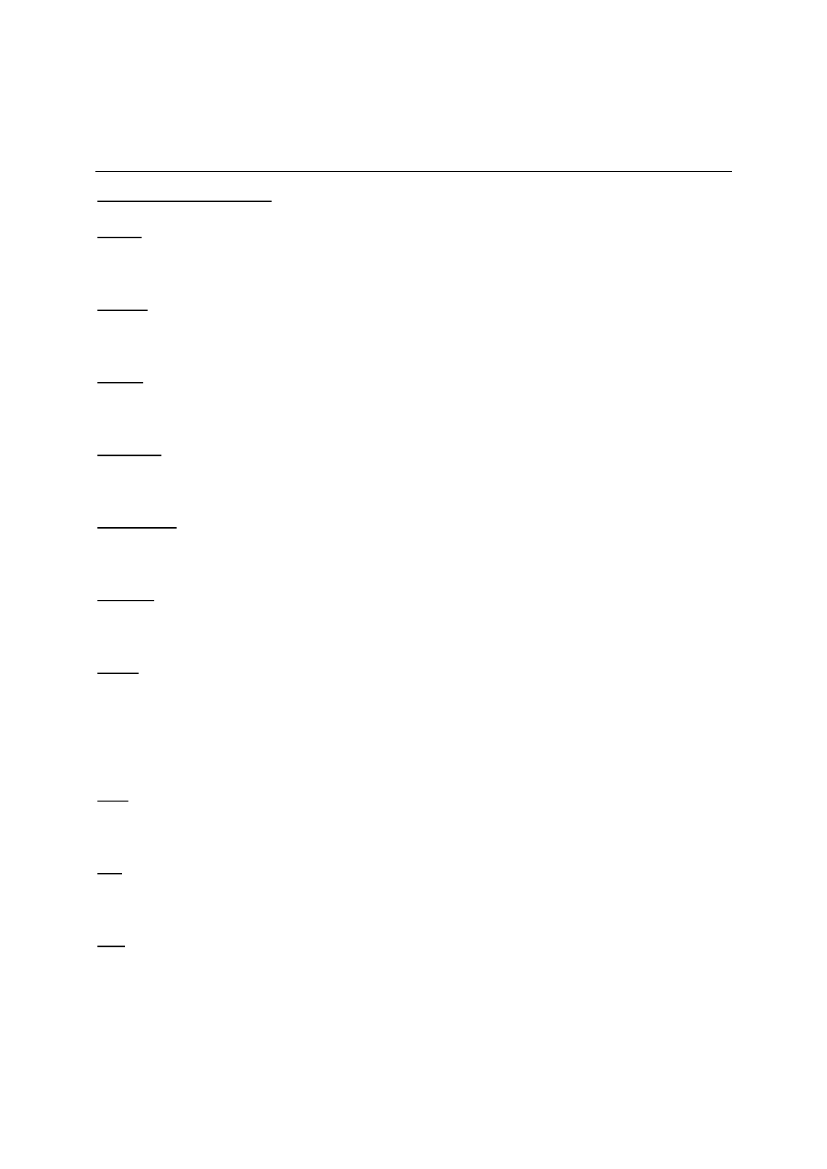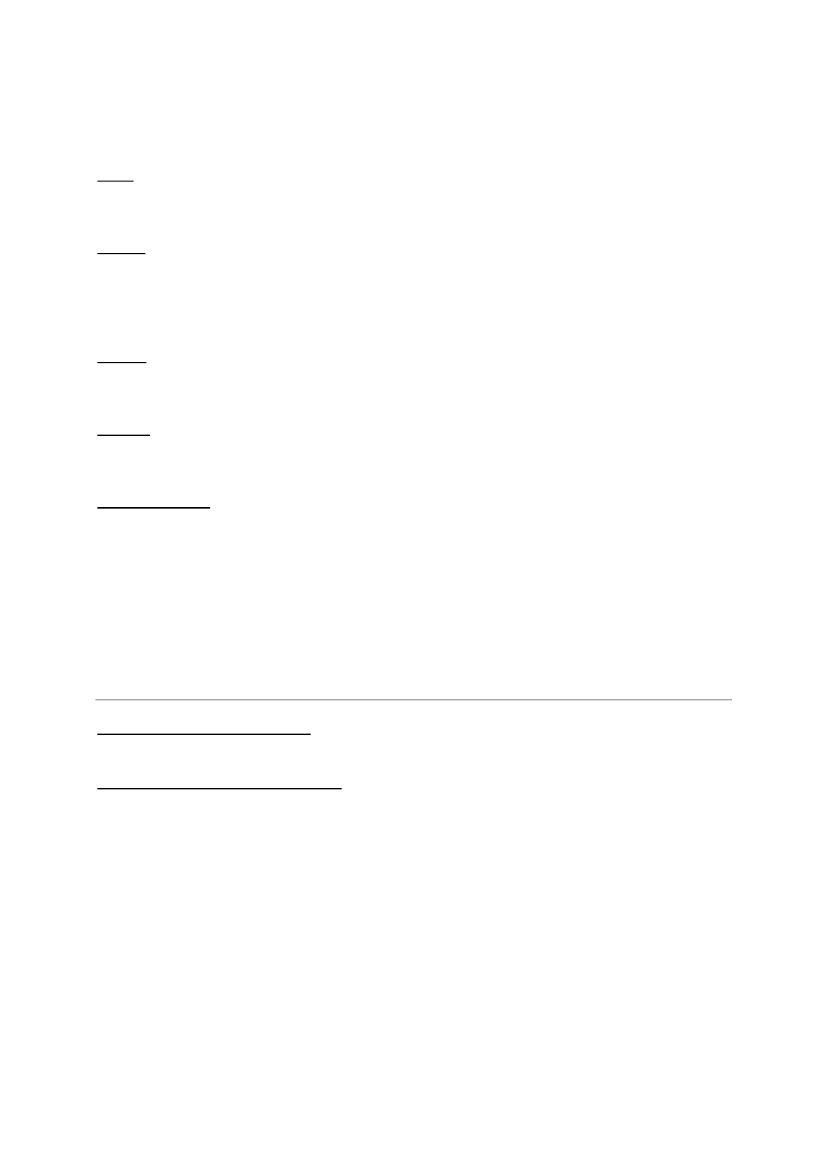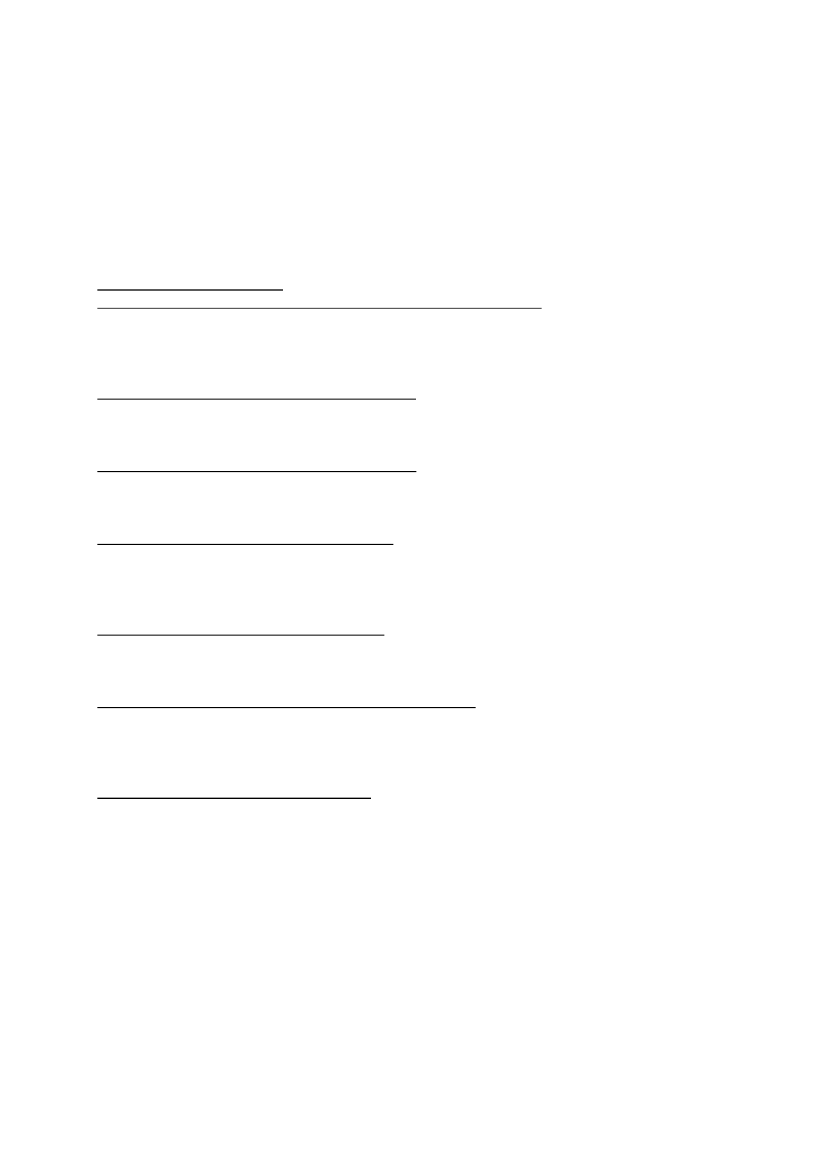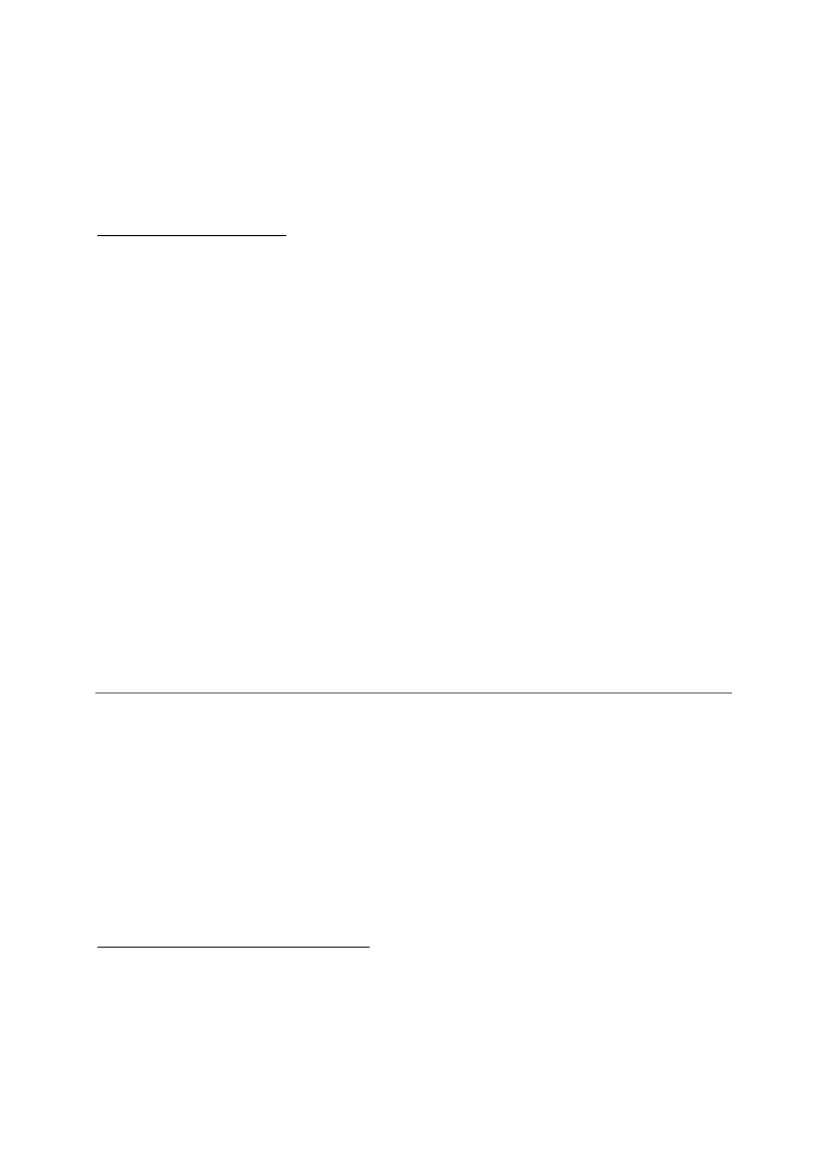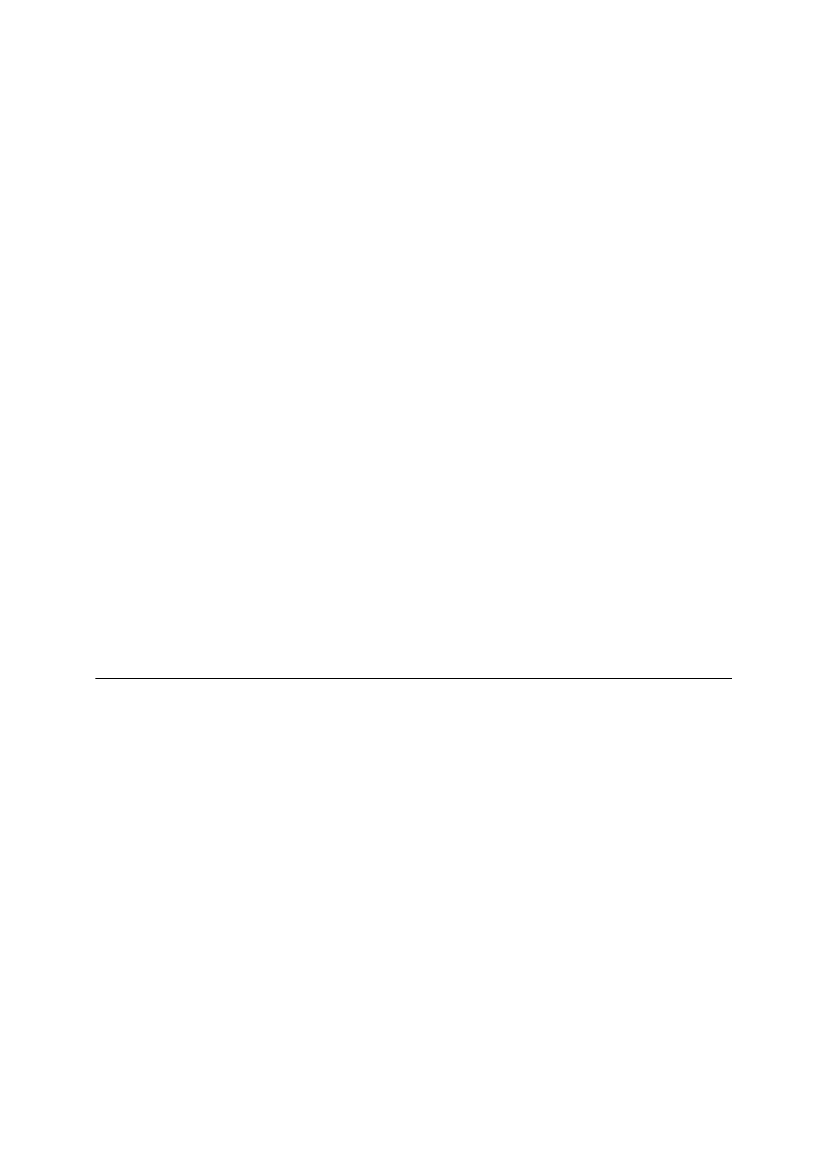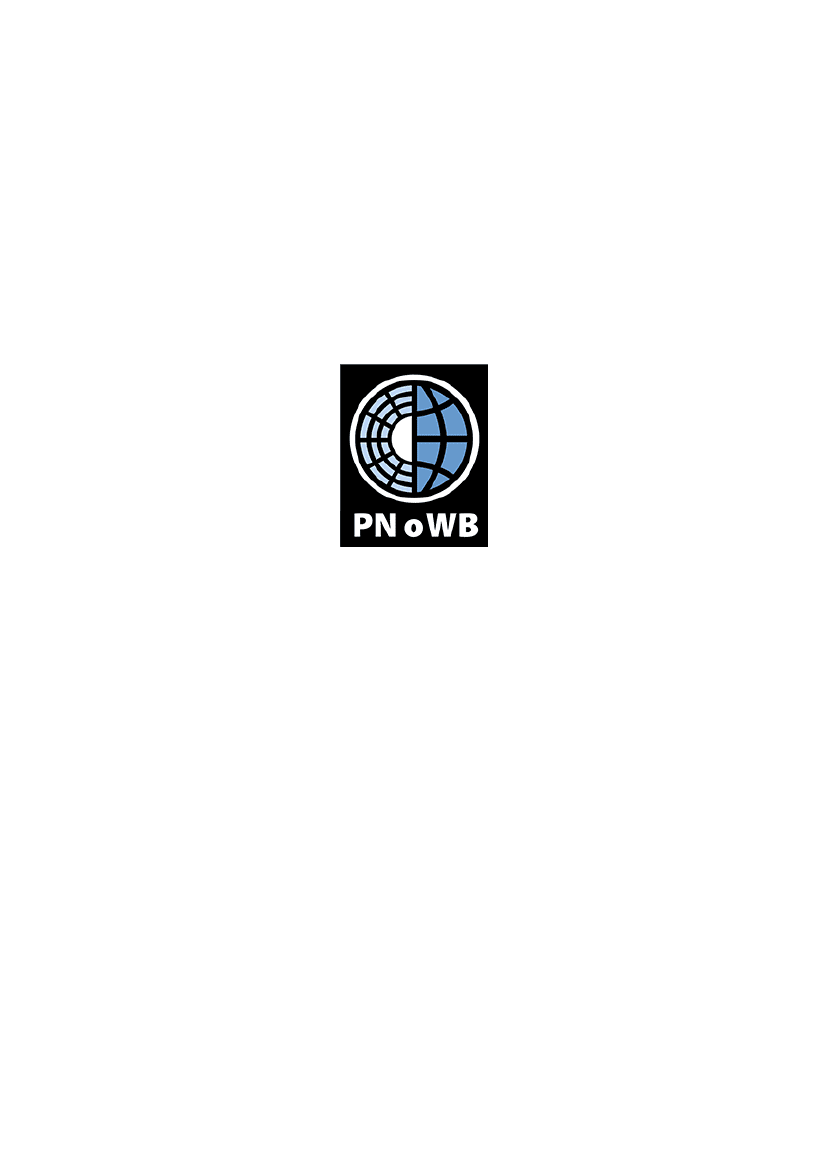Udenrigsudvalget 2009-10
URU Alm.del Bilag 113
Offentligt
PARLIAMENTARYNETWORK ON THEWORLDBANK
Towards Sustainable Development in Burkina Faso:Investing in People, Diversifying Agriculture
Mission Report
Parliamentarians in the field programOuagadougou, Burkina Faso29 November – 4 December, 2009
1
2
Executive summaryBurkina Faso is a low-income, landlocked, sub-Saharan country of 14 million inhabitants (2006 survey)and ranks 177th out of 182 countries in the 2009 Human Development Index (HDI). The country’seconomy is highly dependent on cotton exports, though the government is working had to supportagricultural diversification. In 2007, real per capita income stood at US$430, well below the US$592average for sub-Saharan African countries as a whole. Gross primary school enrollment rate in thecountry has risen from 57% in 2005 to 72.5% in 2007. However, the youth literacy rate is 33% and two-thirds of the adult population is illiterate.Population growth is one of the largest demographic challenges facing the country and the region as awhole. Burkina Faso’s annual population growth rate rose from 2.3% in 1996 to 3.1% in 2006, whichrepresents a population doubling time of 23 years. The country’s major human development needsinclude strengthening education to improve the literacy rate and to create a more globally competitiveworkforce and increasing the efficient delivery of social services, including health.To reach objectives laid out in the country’s Poverty Reduction Strategy Paper (PRSP), the Governmentof Burkina Faso has identified four priority program action areas: accelerating equity-based growth;improving access to basic social services for the poor; expanding pro-poor employment opportunitiesand income-generating activities; and promoting good governance. The World Bank country office inBurkina Faso supports the government’s PRSP through its Country Assistance Strategy (CAS).During a six-day field visit program from 29 November to 4 December, 2009, a 15-member delegationcomprised of parliamentarians from 14 countries observed and discussed Burkina Faso’s developmentprogram. The delegation also interacted with Burkinabé parliamentarians, members of the local chapterof the Parliamentary Network on the World Bank (PNoWB), the World Bank country office in BurkinaFaso, civil society representatives, private sector representatives, donors and aid agencies, local officialsand community members. Throughout the program, the delegation identified key development issuesand made corresponding recommendations. The emerging issues focused on four themes:I.II.III.IV.Handling the impact of the global financial crisis on Burkina Faso’s development/economyDiversifying agro-pastoral activities in the countryMining and extractive IndustriesAid coordination and effectiveness in Burkina Faso
A summary of the delegation’s recommendations in each of these four areas is as follows:I. Handling the impact of the global financial crisis on Burkina Faso’s development/economyBurkina Faso should write a national plan on increasing women’s formal participation in the economy.The government should also sponsor a national competition encouraging agricultural innovation andgeneral entrepreneurship in the country. To attract more foreign investment and take full advantage ofits strategic position in the middle of six West African countries, Burkina Faso should build a well-situated, accessible industrial center.The World Bank country office in Burkina Faso should open doors to help the country advocate for fairprices and conditions for its cotton exports. The Bank should also work with the government to reach3
out to the country’s Diaspora and better understand their role in the economy. The Bank shouldprioritize supporting cross-border infrastructure projects to reduce the cost of energy while buildingeconomic capacity and resiliency in the region as a whole.For a complete list of main issues and recommendations identified by the delegation, seepage 10.II. Diversifying agro-pastoral activities in the countryThe government of Burkina Faso should commission a study to identify exports with a high economicvalue later in the production chain-- for example, tomatoes into ketchup. The country could also benefitfrom the recent organic movement by marketing its self as a producer of organic products and sellingthem on the global market. The government of Burkina Faso should consider agricultural policy changein two areas: the exportation of cotton bi-products that could instead be retained to help fosterdomestic animal production; and the re-use of animal waste for crop fertilizer instead of chemicalproducts. It should also consider writing a climate change strategy to address the impact on agriculturalproduction. In its education strategy, the country should prioritize creating schools that teachagricultural skills and water management techniques in the local language(s).The World Bank country office in Burkina Faso should disengage from small-scale projects that could berealized by the communities themselves and foster the exchange of good practices in agriculturaldiversification between West African countries. In addition, the Bank should help to bring new, greenagricultural innovations to the country.For a complete list of main issues and recommendations identified by the delegation, seepage 12.III. Mining and extractive industriesBurkina Faso should serve as a model of good governance in mining for other neighboring countries byenacting stronger parliamentary review and scrutiny over mining practices and revenue, increasing thecapacity of civil society to act as a watchdog, and strengthening labor laws beyond the EITI initiative toprotect the country’s workers in the sector. The government should ensure that mining companies’Corporate Social Responsibility programs align with the country’s Poverty Reduction Strategy Paper.The World Bank country office in Burkina Faso should support the country to develop capacity withinthe government to calculate mining resources and revenues as well as the royalties and taxes owed bymining companies. The Bank should also work with the government to help the country find a balancebetween making mining in Burkina Faso attractive to interested companies and ensuring that thepopulation benefits from the industry.For a complete list of main issues and recommendations identified by the delegation, seepage14.IV. Aid Coordination and Effectiveness in Burkina FasoThe government of Burkina Faso should put policies in place to curb brain drain and encourage itscitizens educated abroad to return home after their studies. The country should consider a gradualphasing in of legislation requiring all International NGOs with a presence in the country to follow thesame aid coordination procedures and principles as those followed by donor agencies per the ParisDeclaration on Aid Effectiveness and the Accra Agenda for Action.4
The World Bank country office in Burkina Faso should include a sustainability section in every projectplan. This section should discuss when and how the project will become self financing and communityrun. It should also address community ownership of the project. The Bank should engage in fullconsultation with parliamentarians to increase its holistic understanding of development issues at thecommunity level. In addition, the Bank should work with the communalities in which they implementprojects to come up with local solutions and ensure 360 degree project planning and implementation.For a complete list of main issues and recommendations identified by the delegation, seepage 16.
Ouagadougou/Paris, 15 December 2009
5
Towards Sustainable Development in Burkina Faso: Investing in People,Diversifying AgricultureAParliamentarians in the Fieldmission report
Note to readers: This report does not use a chronological structure, instead, it provides a one-page visitorientation (section I) in preparation for the main content of the report (section II), which is divided intofour thematic focuses: handling impacts of the global financial crisis; diversifying agro-pastoral activities;mining and extractive industries; and aid coordination and effectiveness. Each thematic focus isdiscussed in four pieces: 1) background; 2) main issues; 3) delegation recommendations; and 4) follow-up. We hope you will find this structure both intuitive and helpful.
Table of contentsI.OrientationPage 8Page 10Page 10Page 12Page 14Page 16Page 19Page 21Page 21Page 22Page 26Page 27Page 29Page 31Page 33
II. Thematic Focuses and Resulting RecommendationsA: Handling the impact of the global financial crisis on Burkina Faso’sdevelopment/economyB: Diversifying agro-pastoral activitiesC: Mining and extractive industriesD: Aid coordination and effectiveness in Burkina FasoIII. Reporting Requirements and Actions for Future VisitsIV. Annexes1.2.3.4.5.6.7.Burkina Faso and the Millennium Development GoalsAgendaDelegation listContact listThe World Bank in Burkina FasoAbout the Parliamentary Network on the World BankParliamentarians and the World Bank Group
6
7
I. ORIENTATION
Introduction to Burkina Faso and the World Bank country officeBurkina Faso is a low-income, landlocked, Sub-Saharan country of 14 million inhabitants (2006 survey).With limited natural resources and rainfall, the country’s economy is highly dependent on cottonexports and is vulnerable to exogenous shocks. Life expectancy at birth is 52 years, compared with 50years for Sub-Saharan Africa as a whole. Burkina Faso – which has been a World Bank member countrysince 1963 – ranks 177th out of 182 countries in the 2009 Human Development Index (HDI).In 2007, real per capita income stood at US$430, an increase of 50 percent since 1994, but still belowthe US$592 average for Sub-Saharan African countries as a whole. Gross primary school enrollment ratein Burkina Faso has risen rapidly, climbing from 57% in 2005 to 72.5% in 2007. However, the youthliteracy rate is 33% and two-thirds of the adult population is illiterate.Population growth is one of the largest demographic challenges facing the country and the region as awhole. Burkina Faso’s annual population growth rate rose from 2.3% in 1996 to 3.1% in 2006, whichrepresents a population doubling time of 23 years. The increase in the population growth high rate hasbeen accompanied by an increase in the poverty rate, which is once again above 45%.Diversifying agriculture beyond the country’s largest export, cotton, is one of the country’s economicfocuses. In addition, Burkina Faso’s major human development needs include strengthening educationto improve the literacy rate and to create a more globally competitive workforce; increasing the efficientdelivery of social services, including health; and reinforcing accountability at the commune level (localadministration). The World Bank country office in Burkina Faso supports this decentralization ofgovernment to the commune level.To reach objectives laid out in the country’s Poverty Reduction Strategy Paper (PRSP), the Governmentof Burkina Faso has identified four priority program action areas: accelerating equity-based growth;improving access to basic social services for the poor; expanding pro-poor employment opportunitiesand income-generating activities; and promoting good governance. The World Bank country office inBurkina Faso supports the government’s PRSP through its Country Assistance Strategy (CAS), whichprovides the largest slice of funding to transport (27%), followed by agriculture and rural development(22%), energy (16%), education (12%), health (10%), financial and private sector development (5%),public sector governance (3%), environment (3%) and urban development (2%).
8
Introduction to the Parliamentarians in the Field ProgramTheParliamentarians in the Fieldprogram gives MPs unique access to a World Bank country office andits development programs and key partners (including the host country’s parliament). During visits,delegates are briefed by World Bank country representatives on the Bank’s in-country activities. VisitingMPs also meet with host-country parliamentarians to discuss the country’s development priorities.Participants then visit programs and projects and engage with local staff. Delegates also have theopportunity to meet with other key development stakeholders including NGOs, civil societyorganizations and small business owners. At the conclusion of a visit, the delegation shares itsobservations and recommendations on the host country’s development program in a comprehensivereport.More than 175 MPs from 50 countries have participated in over 20 visits to countries in Africa, Asia, theBalkans, Latin America and the Middle East since the program began in 2001. For donor-countryparliamentarians, the program represents an opportunity to see development cooperation in practice.Borrowing-country MPs can use field visits as benchmarking exercises and opportunities to exchangeviews and experiences.Parliamentarians in the Fieldis jointly organized by PNoWB and the World Bank and is supported by agrant from the government of Finland. Previous field visits have taken place in Albania, Burkina Faso,Burundi, Cambodia, Democratic Republic of the Congo, Ethiopia, Ghana, Haiti, Kenya, Laos, Madagascar,Mongolia, Nicaragua, Nigeria, Rwanda, Serbia and Montenegro, Uganda, Vietnam and Yemen.
9
II. THEMATIC FOCUSES and RESULTING RECOMMENDATIONSA. Handling the impact of the global financial crisis on Burkina Faso’s development/economy[Relevant agenda items: Statement of Burkina Faso economy; Briefing session on World Bank portfolio in BurkinaFaso; Working lunch on the Poverty Reduction Strategy; Field visit: Discussion with local authorities in Ziniairé]
BACKGROUNDAccording to the World Bank country office in Burkina Faso, the country’s financial systems are resilient,but not immune to the global financial crisis. The country’s economy continues to be based on lowproductivity agriculture with a single major export crop, cotton. While there are signs that mining isemerging as the country’s second biggest source of export revenue, the impact of this sector on povertyreduction appears to be more muted.The total annual public budget for Burkina Faso is 1,152 billion FCFA (US $2 billion), with around 20%coming from foreign aid. Sixty-two percent of the country’s revenue is internally generated. AlthoughBurkina Faso has limited integration with global financial markets, the financial crisis has spilled overinto the country’s real economy, transmitting stress to its financial system, according to the Bank. Themost direct effect has been seen as a result of fluctuations in the price of cotton: a 15% reduction in theprice paid to cotton producers could result in a 3% increase in poverty level.MAIN ISSUESLow literacy is a significant challenge when it comes to increasing a country’s economic capacityto diversify and develop. The education system must be strengthened, especially in rural areas(which accounts for 80% of the population in Burkina Faso) to provide the kind of educatedworkforce that the country needs.Forty-five days are needed to move a container from Burkina Faso’s capitol, Ouagadougou, tothe nearest shipping port. This flags issues not only in the need for improved transportinfrastructure, but also makes clear the country’s current limitations in diversifying agriculturalexports (potential for fruit and vegetables to over-ripen before reaching the shipping stage).Cotton subsidies, such as those imposed by the US, pose a growing problem for Burkina Faso,making its cotton less competitive in the global market.Adapting to the specifics of the crisis in the country: in Burkina Faso, there was a food crisis anda flood crisis during the financial crisis. When addressing the financial crisis in the country,institutions and the government must also take the food crisis into account.The high level of population growth poses a number of challenges to the country’s economicdevelopment, including a high number of dependants and a scarcity of available schooling.DELEGATION RECOMMENDATIONSTo the Government and Parliament of Burkina FasoThe economic crisis is an opportunity to focus on increasing women’s formal participation in theeconomy and improve their access to markets. This in turn could help to curb the high10
population growth rate as women are given increasing options and opportunities to define theirvalue to society. Burkina Faso should work with NGOs specializing in microfinance andsupporting women entrepreneurs to write a national plan on increasing women’s formalparticipation in the economy.The global economic crisis has served as a reminder of the need to diversify the economy and beless cotton dependent. The government should sponsor a national competition encouraginginnovation and entrepreneurship to this aim while offering some measures of protection tosmall-scale cotton farmers.The country should reinforce its national financial institutions to mitigate the effects of futurecrises and downturns. In addition, continuing to ensure internal security is vital to promote astrong investment climate.To attract more foreign investment and take full advantage of its strategic position in the middleof six West African countries, Burkina Faso should consider building a well-situated industrialcenter.The government should support local mayors and communities to address the impacts of thefinancial crisis at the local level, this is not only the job of the national government. Localgovernors must be more innovative in developing revenue-generating activities in their areasand should encourage entrepreneurs.
To the World Bank country office in Burkina FasoThe World Bank country office in Burkina Faso should open doors to help the country advocatefor fair prices and conditions for its cotton exports. The country could then mobilize otherregional cotton producers to form an advocacy coalition demanding an end to unfair cottonsubsidies. If the World Bank is not the most appropriate development partner to do this,perhaps an organization like Fair Trade could be involved.The Bank should work with the government to help the country reach out to its Diaspora andensure that data on their contributions and remittances is accurate and up to date to allow forfurther understanding of their role in the economy.The Bank should work with the national government and local governments to create programsthat support entrepreneurship and innovation in industries in which Burkina Faso has acompetitive advantage.In order to support economic growth and improve energy infrastructure in the region, the Bankshould prioritize supporting cross-border infrastructure projects, such as the power generationproject with Burkina Faso, Cote d'Ivoire and Ghana. These cross-border projects help to reducethe cost of energy while building economic capacity and resiliency in the region as a whole.FOLLOW-UPThe World Bank country office in Burkina Faso will provide more information to the PNoWBsecretariat about the PAFASBE initiative, which the secretariat will then share with delegationmembers.PNoWB secretariat to follow-up with the World Bank country office in Burkina Faso concerninginnovation/entrepreneur supporting activities in the country. PNoWB secretariat will thenreport back to the delegates.
11
B. Diversifying agro-pastoral activities
[Relevant agenda items: Statement of Burkina Faso economy; Briefing session on World Bank portfolio in BurkinaFaso; Working lunch on the Poverty Reduction Strategy; Field visit: Discussion with local authorities in Ziniairé;Field visit to private cattle-fattening unit; Field visit to onion storage unit; Working session with the commission offinance]
BACKGROUNDBurkina Faso’s main industry is agriculture, which accounts for 40% of the country’s total revenue andemploys 80% of the population. Cotton alone accounts for 50 to 65% of the country’s export materialand employs 20% of the population- a full three million people. Because of the country’s highdependence on the export of this single product, cotton price fluctuations have a high poverty impact: a25% reduction in the price of cotton fiber exports can lead to a 1.8% decrease in GDP. Given suchstatistics, diversifying agricultural output and expanding pastoral (animal raising) activities is a priorityfor both the government and a large number of development actors, including the World Bank.The World Bank’s project to diversify agro-pastoral production in the country has four main focuses:livestock-raising activities, local chicken production, mango exportation and onion production. Largedomestic fruit markets provide a venue for growers to sell their crops, including mangoes. The country isalso beginning to look beyond the local market towards exporting to the US and Europe. However, thiswill necessitate modern packaging and storage facilities for better export.In terms of pastoral activities, the government of Burkina Faso supports diversification beyond meatproducts to milk and leather production as well as cattle breeding programs.MAIN ISSUESDiversification into agro-pastoral sectors in which Burkina Faso has a comparative advantage.How to provide the country with solutions to increase its agricultural productivity without usingchemical fertilizers. Reservoir catchment areas are principally agricultural zones that oftencontain high levels of nitrates and phosphates. Even if this is not the current situation, it issomething that must be monitored and prevented as Burkina Faso continues to increase itsagricultural production (cotton, for example, requires significant amounts of pesticides).Supporting small cotton producers by insulating them from market fluctuations and aidingfarmers exiting from cotton production.Local youth are not interested in agriculture and animal husbandry -- the country’s two mostimportant economic activities -- they want to go to the city, even if it means earning less moneythan a good job in animal husbandry.Lack of health and welfare standards for animals limits export possibilities for animal productsoriginating in Burkina Faso.Cattle production is largely a man’s activity. Without further innovation regarding the rolewomen can play in this activity, the government’s strong support for this activity could partiallynegate efforts to increase women’s participation in income generating activities and their accessto markets.DELEGATION RECOMMENDATIONSTo the Government and Parliament of Burkina Faso12
The government of Burkina Faso should commission a study to help identify exports that couldhave a higher economic value later in the production chain-- for example, tomatoes intoketchup. Refined exports have a higher rate of return than raw materials, but it will beimportant to capitalize on specific areas in which Burkina Faso has a strategic advantage, asopposed to those in which there is already high competition. In addition, it will also benecessary to take into account the cost of constructing and maintaining storage and processingfacilities.Burkina Faso could benefit from the recent organic movement, marketing its self as a producerof organic products (not limited to foodstuffs, but including locally made soaps and beautyproducts) and selling them on the global market. The NGO Fair Trade may be able to help thegovernment reflect on its options and possible supply chains.The government of Burkina Faso should consider agricultural policy change in two areas:oRe-examine the current policy on the exportation of bi-products emerging from thecotton production process that could instead be retained to help foster domestic animalproduction.oLook into creating a new policy on the re-use of animal waste for crop fertilizer insteadof chemical products. Currently, individual farmers may choose to do this, but there isno national-level policy encouraging or requiring it. This could help to prevent the build-up of toxins in the soil that many industrialized societies suffer from after relying onchemical fertilizers.The government of Burkina Faso should consider writing a climate change strategy as a changein rainfall patterns and temperatures will have a large effect on farming in the country.Preparing a strategy now will help to mitigate effects later.In its education strategy, Burkina Faso should prioritize creating schools that teach agriculturalskills in the local language(s). These schools could also teach water management techniques(such as multiple use systems) as agriculture is the single largest consumer of water resources.
To the World Bank country office in Burkina FasoThe World Bank country office in Burkina Faso should disengage from such small-scale projectsas the onion storage units, which, with the support of the government, could be wholly ownedby the communities. Local producers could organize themselves, secure the small amount offinancing required, and work together to build the units. This would empower the community,give them ownership of the achievement and show them that they can meet their own needs,without depending on the World Bank or an NGO.The World Bank could support and strengthen the government’s agro-pastoral strategy byconducting a study on how to increase the role of women in animal husbandry in the country.The Bank could also foster the exchange of good practices in agricultural diversification betweencountries in the region via neighboring World Bank country offices. Given its strategic position atthe intersection of six West African countries, the World Bank country office in Burkina Fasocould take the lead on this initiative, pulling together a case studies document to be shared bothwithin the region and beyond.FOLLOW-UPPNoWB secretariat to follow up on forthcoming agro-pastoral legislation as well asenvironmental legislation in Burkina Faso and inform delegates.13
PNoWB secretariat to follow up with the World Bank country office in Burkina Faso on thepossibility of producing a ‘good practices in agricultural diversification in West Africa’compendium.
C. Mining and extractive industries
[Relevant agenda items: Statement of Burkina Faso economy; Briefing session on World Bank portfolio in BurkinaFaso; Meeting with representatives of civil society organizations; Meeting with EITI permanent secretary andactors involved in the mining sector]
BACKGROUNDSignificant-scale mining in Burkina Faso began in 2007 with the opening of the Taparko-Boroum mine,operated by a Canadian subsidiary. A further three major gold mines are currently under development,mainly by Canadian and Australian companies. Copper, manganese and zinc deposits are also beingexplored. Small-scale artisanal mines operate in the country, but these are dangerous, often sufferingcave-ins, and the government is trying to shut them down. Despite this, artisanal gold is the country'sthird largest export. In total, mining brings roughly eight billion FCFA ($US 18 million) annually into theeconomy.Burkina Faso is currently a candidate country for the Extractive Industries Transparency Initiative (EITI);it has until May 2011 to complete the EITI validation process. According to the World Bank countryoffice in Burkina Faso, there is a strong desire in the country for good governance in the mining sector,which is evidenced by the fact that the country joined the EITI in the early stages of its mining industrydevelopment.In 2001, the World Bank country office in Burkina Faso supported the first multi-party dialogues on themining sector, including how to mine available resources safely. The Bank also supports the governmentof Burkina Faso as it prepares mining sector policies and has worked to increase the country’s generalcapacity in the sector. Currently, there are two main laws governing extractive industries in the country:a mining law and an environmental law. In addition, each mining area has created a local committee todiscuss challenges that the sector poses to the local people and environment.MAIN ISSUESFostering the role of Civil Society Organizations (CSOs) and local NGOs to monitor not only themining sector in the country but also large foreign companies. CSOs and local NGOs have a keyrole to play in protecting citizens from these giants of the business world who may not alwayshave local interests in mind. Historically, civil society has not had enough weight to play thiswatchdog role effectively. The country’s media also has a key role to play in informing society,but this can only be realized with complete freedom of the press and fair and impartialcoverage.Insufficient infrastructure, workforce and public investment capacity in Burkina Faso maynecessitate bringing in skilled foreign labor, which could mean missed opportunities for localcapacity building.14
Ensuring that as revenue earned from mining increases, it benefits the entire population ofBurkina Faso via investment in education, health and improved infrastructure.
DELEGATION RECOMMENDATIONSTo the Government and Parliament of Burkina FasoBurkina Faso could serve as a model of good governance in mining for other neighboringcountries. To do so, the country should:�Enact stronger parliamentary review and scrutiny over mining practices and revenue toensure transparency in this very socially and environmentally sensitive sector.�Increase the capacity of civil society to act as a mining watchdog. This will mean addingweight to their voice via increased consultation and input into draft legislation.�Go further than the EITI initiative in terms of labor laws to protect the country’s workers inthe sector.�Ensure that local populations are familiar with the country’s mining laws and understandwhat impacts they have on the community and on their livelihood.The government of Burkina Faso should familiarize its self with the Corporate SocialResponsibility (CSR) strategies of mining companies already present and those looking to enterso that the country can reap the greatest benefit from social programs provided by the miningcompanies and ensure that they fit in with larger development aims.To the World Bank country office in Burkina FasoMining revenue loss helps to perpetuate the cycle of low development in Africa. The World Bankshould support Burkina Faso to develop capacity within the government to calculate miningresources and revenues as well as the royalties and taxes owed by mining companies. This willhelp to ensure that the country does not lose extractive industries revenue. The World Bankshould also work with the government to help the country find a balance between makingmining in Burkina Faso attractive to interested companies and ensuring that the populationbenefits from the industry.Help to build the monitoring capacity of civil society in the country by providing training daysand budgetary support for capacity building opportunities such as participation in internationalconferences and seminars on civil society’s role in transparent mining practices.FOLLOW-UPCivil society in non-EITI countries can use EITI principles to advocate for transparent miningpolicy and practice in their country. The delegation representative from Cameroon expressedinterest in learning more; the World Bank country office in Burkina Faso will put him in touchwith colleagues working on mining in Cameroon.To support parliamentarians from all countries with extractive industries to collectively advocatewith their governments to “publish what they pay” for resource contracts, PNoWB secretariatwill conduct a brief follow-up case study report on the implementation of EITI standards inseveral countries.
15
D. Aid coordination and effectiveness
[Relevant agenda items: Briefing at the World Bank office; Day 2 working lunch with key ministers; MongoliaEconomic Policy Conference.]
BACKGROUNDThe Government of Burkina Faso has taken an active lead in donor harmonization. An aid managementplatform to help the government monitor aid flows systematically in support of the country’s NationalAction Plan for Aid Effectiveness (PANEA) facilitates aid alignment with the country's priorities, improvesthe predictability of aid flows, and strengthens aid coordination. In 2007, supported by PANEA, donorsagreed to prepare a joint strategy to be finalized by 2010. In addition, a number of donor organizationsin 2005 established a secretariat known as STELA to support the country’s donors in implementing theParis Declaration principles.The World Bank country office in Burkina Faso works to address aid effectiveness by streamlining anumber of their projects directly into the country’s budget. Insofar as program evaluation is concerned,World Bank programs are regularly evaluated by the Independent Evaluation Group (IEG), which hasfound the Bank’s programs in Burkina Faso to be “highly satisfactory.”In terms of specific development priorities, the country faces significant challenges in achieving theMillennium Development Goals (MDGs) for infant and maternal mortality as well as for nutrition.MAIN ISSUESThe delegation identified severalproject sustainabilityissues:oCommunity ownership- Without a sense of community ownership, projects are notsustainable as people will not feel responsible for their continuation and upkeep. Thisturns citizens into passive recipients of development, not actors and partners in theirown right. An example of poor community ownership of a World Bank program wasseen at the health centre in Korsimoro. The Bank had neglected to provide toiletfacilities in the health center and the maternity ward, it also neglected to constructtemporary housing for patients’ families. Instead of addressing these needs themselvesby providing solutions using local materials and technologies (simple sheltered pitlatrines and small huts made of local materials), the locals were waiting for the WorldBank to correct the oversight. This reflects a lack of community ownership of theproject, a warning sign of unsustainable development.oProject planning and implementation- The lack of bathroom facilities at the Korsimorohealth center and maternity ward represent a serious planning and implementationoversight, as does the lack of temporary housing for family members accompanyingpatients. This kind of oversight leads to unsustainable development as facilities thatwere planned and built without the full participation of the community are eventuallyabandoned.oSelf-sustainability and exit strategies- The goal of any development project is self-sustainability. When the funders exit and the money stops flowing, the projects andprograms – including infrastructure – must be self-financing and able to be maintainedby the country/community. Many of the World Bank-funded projects that thedelegation visited, including the large ONEA water supply project that provides water toall of Ouagadougou, are completely donor dependant and without a sustainability/16
donor exit strategy. This finding was confirmed by the World Bank’s regionalrepresentative.The delegation also identified a number ofcapacity issues:oCritical thinking- Increased development coordination spearheaded by countriesreceiving development cooperation funds requires critical thinking, a skill that cannot betaught in the same way as “following procedure.” To foster critical thinking, a well-developed, advanced educational system linking primary, secondary and tertiaryschooling is needed. This takes generations to build in any country, including BurkinaFaso.oKnowledge informing policy-The Swedish international Development CooperationAgency (SIDA) has an initiative to share information and knowledge emerging fromdevelopment programs with the government of Burkina Faso. This is an importantinitiative, one that also requires the capacity on the part of the government to translatethis increased information sharing into improved development policy andimplementation.Burkina Faso is said to have a higher concentration of NGOs (both foreign and local) than anyother developing country. For aid coordination and effectiveness to truly have meaning, NGOsworking in the country must also operate according to the Paris Declaration principles of aideffectiveness, including alignment behind the country’s PRSP. Bringing NGOs into the aidcoordination fold would require even more coordination capacity on behalf of the government.Increased channeling of aid directly to the government gives donors the right to have input on acountry’s management of these funds, but not on their allocation. Does it also give donors theright to have a say in a country's development policies?Measurability: How can the government measure whether development programs are reachingthe intended recipients, i.e. the poorest of the poor and those most in need?
DELEGATION RECOMMENDATIONSTo the Government and Parliament of Burkina FasoIn order to build the country’s capacity to increase donor coordination and aid effectiveness, thegovernment of Burkina Faso should put policies in place to curb brain drain and encourage itscitizens educated abroad to return home after their studies. To do so, the government mustreinforce the capacity of the public sector in the country by offering competitive salaries toattract and retain the best candidates. The government should also put in place incentives toencourage students educated abroad to return home. The World Bank country office in BurkinaFaso may be able to provide the government with information regarding similar practices inother developing countries as well as the funding support to implement such a program.The government of Burkina Faso should consider a gradual phasing in of legislation requiring allInternational NGOs with a presence in the country to follow the same aid coordinationprocedures and principles as those followed by donor agencies per the Paris Declaration on AidEffectiveness and the Accra Agenda for Action. This would include a common set of reportingindicators for program effectiveness. Before considering a policy of this kind, the governmentshould undertake a full consultation with all development actors in the country. Additionally,before such a policy is phased in, the government must ensure that it has the capacity to handlethe high level of development-actor coordination necessary to harmonize program planning and17
implementation in the country, otherwise development programs could come to a standstill dueto bureaucratic delays.To the World Bank country office in Burkina FasoThe World Bank country office in Burkina Faso should include a sustainability section in everyproject plan. This section should discuss when and how the project will become self financingand community run. It should also address community ownership of the project: what is beingdone to empower the community to fully participate in the planning, implementation andmonitoring of the program and to promote community ownership of the project in all its stages.With specific reference to the health center and maternity ward in Korsimoro, the Bank shouldwork with the community to decide on the most sensible and sustainable design andconstruction for toilet facilities in the health center. In addition, the Bank should also work withthe community to come up with local solutions to the problem of where to house familymembers accompanying health center patients and women delivering in the maternity ward.There is also the issue of increasing access to the health center and maternity ward, which are15 kms away from the furthest village in the community. The World Bank should work with thecommunity to find solutions to increase women’s access to trained birth attendants if they areunable to travel the distance to the center. One possibility is to have a trained birth attendant orvillage health worker in every village. There are many pre-existing programmatic models forimplementing a village health worker scheme, the delegation representative from Nepalsuggested that Burkina Faso may want to look into the model used in Nepal. The World Bankshould work with WHO and the government of Burkina Faso to identify feasible models for thelocal context.The Bank should engage in full consultation with parliamentarians to increase its holisticunderstanding of development issues at the community level.FOLLOW-UPPNoWB secretariat to follow up with World Bank country office in Burkina Faso regardingimprovements to the Korsimoro health center and share this information with delegates.PNoWB secretariat to work with Burkina Faso parliament and the World Bank country tostrengthen and support the local PNoWB chapter.PNoWB secretariat to work with Burkina Faso chapter to help redynamise the regional WestAfrica PNoWB chapter.
18
III. REPORTING REQUIREMENTS and ACTIONS FOR FUTURE VISITS
PNoWB secretariat to share delegation visit report and individual delegate reports with theWorld Bank country office in Burkina Faso in December 2009.World Bank Burkina Faso country office to provide a brief follow-up report to PNoWB delegatesin 18 months time.On future visits, PNoWB will consider splitting the delegation into smaller groups for certainmeetings according to participants’ experience, background and interest. Smaller groups alsoprovide more time for focused, meaningful discussion.
19
20
IV. ANNEXESAnnex 1: Burkina Faso and the Millennium Development GoalsGoal 1: Eradicate extreme poverty andhungerInsufficient information
Goal 2: Achieve universal primaryeducation
Possible to achieve if some changes are made
Goal 3: Promote gender equality andempower women
Possible to achieve if some changes are made
Goal 4: Reduce child mortality
Off track
Goal 5: Improve maternal health
Possible to achieve if some changes are made
Goal 6: Combat HIV/AIDS, malaria andother diseases
Possible to achieve if some changes are made
Goal 7: Ensure environmentalsustainability
Possible to achieve if some changes are made
Goal 8: Develop a global partnershipfor development
Insufficient information
Source: MDG Monitor, UNDP, updated August, 2008
21
Annex 2: AgendaParliamentary Field Visit to Ouagadougou, Burkina Faso (November 29 to December 4, 2009)Day 1 – Sunday 29, November, 2009Jour 1- Dimanche 29 novembre 2009
AfternoonAprès-midi7:30 pm19 :30
Arrival at International Airport of OuagadougouArrivée à l’aéroport international de Ouagadougou--Diner
offered by PNoWB local ChapterDîner
offert par le réseau national PNoWB Burkina FasooAllocution de bienvenue/Welcome addressoPrésentation des objectifs de la visite/ Goals of the visitoPrésentation du Réseau parlementaire sur la Banque mondiale/Presentation on the PNoWBoPrésentation des délégués/Delegates’ introduction
Place/lieu : à confirmer/ to be confirmed
Day 2 – Monday 30, November, 2009Jour 2- Lundi 30 Novembre 2009
8:30–11:00 am
*Briefing Session
on World Bank Portfolio in Burkina Faso by Galina Y. Sotirova,Country Manager, World Bank.
*Statement of Burkina Faso economy
(cotton issue & international crisiseffects), by Djibrilla Issa, Senior Financial Sector Specialist, World Bank
* * Séance de Briefing
sur le portefeuille de la Banque mondiale au BurkinaFaso par Galina Y. Sotirova, Représentante résidente.Présentation
de la situation économique du Burkina Faso (coton & les effets dela crise financière) par Djibrilla Issa, Spécialiste principal du SecteurFinancier (Banque Mondiale).22Place/lieu : Azalai Hôtel Indépendance
11:15 am
Tu Courtesy Visit
to the President of the National Assembly, H.E. Rock MarcChristian Kaboré.Visite de courtoisie
au Président de l’Assemblée nationale, S.E. Rock MarcChristian Kaboré.Place/ lieu : National Assembly/Assemblée nationale
11:45 am-1:00 pm/11 :45 -13 :00Working session
with the PNoWB local Chapter.Session de travail
avec les parlementaires du Réseau Parlementaire sur laBanque mondiale local.Place/ lieu : National Assembly/Assemblée nationale
1:15–3:30 pm13 :15 – 15 :30Working Lunch
on the Poverty reduction strategy in Burkina Fasoby Mr. Tiendrebéogo Yamsékré, DGCEP (Poverty Reduction Strategy Paper)Coordinator.Déjeuner de travail
sur la stratégie de réduction de la pauvreté au Burkina Fasopar M. Tiendrebéogo Yamsékré, DGEP Coordinateur du CSLP (DocumentStratégique de Réduction de la pauvreté).Place/lieu : Azalai Hôtel Indépendance
4:00–6:00 pm16 :00-18 :00Meeting
with representatives of Civil Society organizationsSession de travail
avec des représentants des organisations de la société civilePlace/lieu : Azalai Hôtel Indépendance
23
7:30 pm19 :30
Diner
offered By H.E. Rock Marc Christian Kaboré – President of the NationalAssembly; with traditional artistsDîner
à l’invitation du Président de l’Assemblée nationale du Burkina Faso, S.E.Rock Marc Christian Kaboré ; accompagné d’une animation de troupestraditionnellesPlace/lieu : TBDDay 3 – Tuesday 1, December, 2009Jour 3- Mardi 1er décembre 2009
Field visits
on-site :Themes: Decentralization, governance, transparency and accountabilityVisites projets
sur sites:Thématique: Décentralisation, gouvernance, transparence et redevabilité7:30 am
Departure from the hotel to Ziniaré/ Depart de l’hôtel pour Ziniaré
8:30-10:00 am
Discussion with local authorities/ Echanges avec les autorités communales
10:15-11:00 am
Private cattle fattening unit / Visite d’une unité privée d’embouche bovine
11:15 am
Departure for Korsimoro/ Départ pour Korsimoro
11:45 am -12:15 pm
Health and Social Promotion Center / Visite d’un centre de santé et depromotion sociale (CSPS)
Discussion with Rural Communes authorities / Echanges avec les autorités de la24
12:30-1:15 pm12:30-13:15
commune rurale de Korsimoro
Departure for Kaya / Départ pour Kaya1:30 pm/13:30Lunch in Kaya / Déjeuner à Kaya (place/lieu : Hotel Kaziendé de Kaya)2:00–3:00 pm14:00-15:003:15-4:15 pm15:15-16:154:30–5:30 pm16:30-17:30NB : Ouaga-Kaya=100km.
Onion storage unit / Visite d’une unité de conservation d’oignons à Kaya
Return to Ouagadougou / Retour à Ouagadougou
Free eveningSoirée libre
25
Annex 3: Delegation listMembers of Parliament (17)AustriaHon. Mr. Wolfgang PirklhuberMember of Parliament, Austria
BelgiumHon. Mr. Bertin MampakaMember of Parliament, BelgiumCanadaHon. Mr. Dave WilsonMember of Parliament, Canada
CameroonHon. Mr. Serge NoumbaMember of Parliament, CameroonCôte d’IvoireHon. Ms. Akissi Colette KouakouMember of Parliament, Côte d’IvoireDenmarkHon. Mr. Joergen PøulsenMember of Parliament, DenmarkFrance
Hon. Mr. Christophe-André Frassa
Senator, Senate, FranceHon. Mr. Fran§ois LoncleMember of Parliament, FranceIndia
Hon. Mr. Mohamed Hamdullah SayeedMember of Parliament, IndiaHon. Dr. Ali Eslami PanahMember of Parliament, IranHon. Mr. Akhamountry KoukeoMember of Parliament, Laos26
Iran
Laos
Nepal
Hon. Ms. Shanti Basnet AdhikariMember of Parliament, NepalHon. Ms. Ndeye Fatou TouréMember of Parliament, SenegalHead of DelegationPNoWB Board Member
Senegal
SwedenHon. Ms. Carina HäggMember of Parliament, SwedenVietnamHon. Ms. Thi My Huong NguyenMember of Parliament, VietnamOther ParticipantsGalina Sotirova,Country Manager, World Bank, Burkina FasoBegnadehi Claude Bationo,Operations Officer, World Bank, Burkina FasoNayé Bathily,Parliamentary Liaison, World Bank, External Affairs, EuropeOdilia Hebga,Africa External Affairs, World Bank, Europe
Amy Dietterich,
PNoWB Policy Officer and delegation rapporteurJerome Evrard,
Head of PNoWB SecretariatAnnex 4: ContactsMembers of Burkinabé ParliamentPending receipt of list from World BankWorld Bank Burkina Faso country officeClaude BATIONOCatherine COMPAORÉLionel YAROFatoumata DIENDERE/DIALLOSaran Sere SEREMEFancani NIQUIEBOJosephine DRABOH nee KANYOULOUFidele DIABOUGASalifou TIEMTORENestor BASSIEREMakoura Ema TOU27
Alexis BOURGOUBassirou K. LYAlexis KABORETiemoko KONATETone Boukary Jerome ZAMPOUSidibou Desire ZAGREPrivate sector representativesFrom Syndicat des Commer§ants Importateurs et Exportateurs (SCIMPEX)Sidiki SANOGOZaid AZARJean-Louis SERRES COMBESFrom Cercle des Jeunes Chefs d’Entreprises (CERCLE)Mohamed SOGLIBoureima OUEDRAOGOFrom Conseil National du Patronat Burkinabé (CNPB)Mamady NAPONPierre B. KABOREFrom Groupem Professionnel des Industriel (GPI)Ousmane TIEMTOREIbrahim TRAOREMamady SANONFrom Maison de l’Enterprise du Burkina (MEBF)Issaka KARGOUGOUCharles BELEMVIREFrom Chambre de Commerce et l’Industrie du Burkina (CCI-BF)Boureima NANADiango Charly HEBIEDonor country/organization representativesSerge KULYK, West Africa regional representative, World BankTheo HOORNTJE, European CommissionGerard DUIJEJES, Ambassador of the NetherlandsAntoinette DINGA6DZONDO, African Development BankLaurent BARBOT, Ambassador of FranceR. Christopher BARAT, Chargé de mission, AfDMoutari KALLA, FFP, USAIDCecila GUERDRUM, Ambassador of SwedenHervé PERIES, representative, UNICEFMs. CABRAL, representative, WHOSEM Tsutomu SUGIURA, Ambassador of Japan28
Jules SAVARIA, Ambassador of CanadaAnnalisa CONTE, Nutrition program, WFPHarouna OUEDRAOGO, UNPDMogens PEDERSEN, Denmark
Annex 5: The World Bank in Burkina FasoInternational Development Association (IDA)Since early 1994, total IDA commitments for Burkina Faso have amounted to US$1.2 billion, funding 72operations. This includes 12 budget support operations, including eight Poverty Reduction SupportCredits. This sustained support for Burkina Faso’s transition to a market economy has been critical andhas made a measurable difference in many areas. The current IDA portfolio consists of 17 activeprojects, with a total volume of US$817 million, in addition to four regional programs amounting toUS$289 million. Overall portfolio quality and performance are satisfactory.The Country Assistance Strategy (CAS) for FY06-09, approved by the World Bank’s Board of ExecutiveDirectors in May 2005, supports the pillars of the national poverty reduction strategy with analytic work,technical advice, ongoing operations, and new financing. It is built around a results framework thatexplicitly defines the links between IDA-supported activities, direct outcomes of these activities, and thecountry’s higher-level development outcomes. The CAS seeks to contribute to the following fouroutcomes:Accelerated and shared growthImproved access to basic social servicesIncreased employment and income opportunities for the poorBetter governance with greater decentralization
The CAS was reviewed at mid-term (May 2007) in consultation with Burkina Faso’s Government, civilsociety, and development partners. It found that overall, CAS implementation has been satisfactory andmade the following recommendations: (i) strengthening Government and donor response to the 2007cotton crisis; (ii) restructuring World Bank support for private sector development with the objective ofsupporting mining sector investments and SME development among others; (iii) making further effortstoward harmonization; (iv) integrating a gender parity focus more systematically into World Bank-supported operations; (v) improving the monitoring of fiduciary processes; and (vi) conducting anassessment of governance. In 2007, cotton sector restructuring was the focus of intense and in-depthWorld Bank/Government dialogue, and price and competitive measures were adopted to stem cottonsector losses.These measures began to produce results at the end of the 2007/2008 season, although considerablechallenges remain. A sharper focus on private sector development is being developed, with considerableprogress being made with doing business indicators (Burkina Faso moved up from the 163rd rank in2007 to the 148th rank in the overall ratings of the 2009 Doing Business Report) and specific efforts toimprove understanding of the necessary financial and private sector reforms. Also, governance29
assessment work involving civil society has started and the World Bank is assisting the Government withimproving the functioning of government control and audit institutions.A new 2010–2013 CAS has been drafted and was approved by the World Bank’s Executive Board duringits September 9, 2009 session. This new transitional strategy will support the Government’s visionthrough the PRSP, pending adoption of the Government’s new Accelerated Growth and SustainableDevelopment Strategy [Stratégie de la Croissance Accélérée et du Développement Durable SCADD].IFC Role in Country StrategyIFC’s strategy for Burkina Faso is focused on:Improving the investment climate;Capacity building for micro-, small, and medium enterprises and support to financial institutionsto allow them to serve the SME segment;Providing direct technical support to medium-sized enterprises operating in sectors that canhave positive externalities on other related sectors (e.g. agriculture, construction, transport);and,Offering proactive assistance with project development in the financial, hospitality,infrastructure, and mining sectors.
IFC has also approved a loan equivalent to EUR 7.5 million for ONATEL S.A. in order to permit thetelecommunications operator to expand its activities in Burkina Faso. An agreement to transfer 3percent of ONATEL’S capital to IFC was concluded with the Government in April 2009. IFC has provideda financing guarantee for foreign trade activities in the amount of US$5 million to Ecobank Burkina(EBF), under an agreement with EBF’s parent company, EcoBank Transnational Inc. (ETI). In theinfrastructure sector, IFC is working with the World Bank to advise and assist the Government in its bidto craft a sound approach to the new airport planned. IFC has funded a study analyzing the modelproposed by the Government for building the new airport and assessing alternative options for thestructure of a public-private partnership.In the mining area, in June 2009 IFC bought a stake in Gryphon Minerals amounting to US$2 million.This purchase will allow Gryphon to fund its exploration program underway in the southeastern part ofthe country.It should be noted that IFC is in the process of launching a housing sector assistance program called theBurkina Faso Primary Mortgage Initiative (BFPMMI), aimed at (i) improving the legal and regulatoryframework; (ii) introducing a modern approach to managing mortgages and strengthening the capacityof lending agencies; and lastly (iii) increasing the number of mortgage loans available.In conjunction with the World Bank’s Investment Climate Department, IFC has created the “DoingBusiness Better” program, aimed at strengthening specific aspects of the investment climate. Thisprogram has already produced significant results through work with the Government, which hasadopted measures aimed at creating enterprises, issuing construction permits and land titles, cross-border trade, and the settlement of trade disputes. A new labor code aimed at promoting job creationwas also adopted in May 2008.30
IFC is reviewing its field presence and plans to recruit an investment officer who will be based at theOuagadougou office. As of June 30, 2009, IFC’s portfolio stood at US$25.75 million.MIGA Role in Country StrategyExposure - MIGA’s portfolio in Burkina Faso consists of one project to support the country’s tourismsector, with a gross exposure of US$3.3 million. The Agency issued guarantees (against the risks oftransfer restriction, expropriation, and war and civil unrest) to a Malian investor for its equityinvestment and loan guarantee toward a hotel renovation and expansion. This project aims to supportthe country’s efforts to establish itself as a regional center for business tourism. It is expected to (i)create local jobs; (ii) facilitate knowledge transfer; (iii) support the growth of small and mediumenterprises; and (iv) generate an increase in taxes and foreign exchange for the Government. It coversthree of MIGA’s priority areas, as it represents a South-South investment in one of the poorest IDA-eligible countries in Africa. This investment is also a collaborative effort between IFC and MIGA andsupports the World Bank Group’s country assistance strategy for Burkina Faso, which identifies privatesector development as one of its pillars.Pipeline - During FY09, MIGA has worked with Canadian investors to provide guarantees for theirinvestment in a gold mining project in Burkina Faso.WBI - Burkina Faso continues to be an active participant in WBI programs, particularly in the area ofsustainable land management and natural capital, as well as education. Several participants fromBurkina Faso also attended WBI regional events, thus learning from and sharing developmentexperiences with others in the region. While no specific country-level programs are currently plannedfor FY09, it is expected that a number of regional events will attract participation from Burkina Faso.
Annex 6: About The Parliamentary Network on the World BankAbout the Parliamentary Network on the World BankThe Parliamentary Network on the World Bank (PNoWB) provides a platform for parliamentarians fromover 110 countries to advocate for increased accountability and transparency in International FinancialInstitutions and multilateral development financing. Founded in 2000, PNoWB seeks to engage lawmakers from around the globe in the common mission of addressing good governance and povertychallenges in both their home countries and abroad.Directed by a twelve-member Board elected by their peers, PNoWB is an independent non-governmental organization with a secretariat in Paris. The organization is open to all electedparliamentarians from World Bank member states who hold a current mandate. PNoWB membersrepresent themselves and their constituents, and not their countries, parliaments or governments.PNoWB uses five principles to guide its work:
31
•Dialogue:To facilitate and encourage direct dialogue between parliamentarians and multilateraldevelopment institutions to promote greater transparency in development cooperation, particularlywith regards to World Bank programs.•Advocacy:To provide PNoWB members with a platform for coordinated parliamentary advocacy ondevelopment cooperation issues such as the effective use of funds and full implementation of bestpractice standards.•Networking:To encourage early debate and information exchange among parliamentarians on issuesincluding good governance, budgetary oversight of development funds and civil society participation inthe legislative process.•Partnership:To reinforce cooperation between parliamentarians (i.e. policy makers), the academiccommunity, civil society and non-governmental organizations on issues of good governance anddevelopment cooperation.•Increased accountability:To promote the importance of parliamentary oversight in effectivedemocratic control of development assistance in all its phases.ActivitiesPNoWB hosts a variety of activities and special events; participates in and contributes to high-levelinternational discussions; and produces a number of publications to inform development cooperationdebates and support parliamentarians in their advocacy for good governance at the local, national andinternational level.The Annual Conference is PNoWB’s flagship event, bringing together over 200 network members,leaders from civil society and partner organizations, and top officials from a number of InternationalFinancial Institutions including the World Bank, IMF and regional development banks. PNoWB annualconferences are hosted by the Parliament and Government of countries where the event takes place.In addition to the Annual Conferences, one of the network’s most well-received activities has been theParliamentarians in the Field program, which gives MPs unique access to a World Bank country office, itsdevelopment programs and key partners (including the host country’s parliament and civil society).More than 175 MPs from 50 countries have participated in over 20 visits to countries in Africa, Asia, theBalkans, Latin America and the Middle East since the program began in 2001. Parliamentarians in theField is jointly organized by PNoWB and the World Bank and is supported by a grant from thegovernment of Finland.PNoWB also regularly participates in a number of special events including global summits, parliamentaryassembly caucuses and economic briefing sessions.Publications and PapersWritten resources include field mission reports, best practice studies, policy briefing documents and aquarterly network newsletter – Network News – with a circulation of more than 2000 readers. NetworkNews features articles from economic and parliamentary experts and leaders including DominiqueStrauss-Kahn, managing director of the IMF and Louis Michel, European commissioner for developmentand humanitarian aid.32
PNoWB recently launched its Parliamentarians & Development series, a quarterly, topical briefing paperpresenting key issues in development cooperation, aid effectiveness and international financialinstitutions in a succinct, accessible format and including a short analysis specifically forparliamentarians.In addition to these regular publications, PNoWB features several special resources such as theParliamentarian’s Guide to the World Bank, a handbook developed jointly by the World Bank andPNoWB to provide an overview of the Bank’s governance structure, policies, evaluation and reviewmechanisms.Policy resourcesPNoWB produces a number of policy resources to support parliamentarians in their advocacy for goodgovernance and increased aid accountability. The Network is compiling a series of ten best practicescase studies that clearly illustrate effective parliamentary/World Bank relations leading to improveddevelopment outcomes. In addition, PNoWB in an upcoming campaign will seek to empowerparliamentarians from donor and partner countries to hold International Financial Institutions -- mostnotably the World Bank -- accountable to aid effectiveness principles outlined in the Paris Declarationand Accra Agenda for Action in their allocation, administration and transparent evaluation ofmultilateral development funds. Materials supporting this campaign are available on PNoWB’s websiteas of February 2010.FundingPNoWB receives funding from the governments of Finland, the Netherlands and the United Kingdom. Inaddition, PNoWB Annual Conferences have been funded by the governments of the Greece, France, theNetherlands, South Africa, Switzerland and the United Kingdom. The Network also co-supports activitieswith the World Bank.
Annex 7: Parliamentarians and the World Bank GroupParliamentarians can be powerful advocates for development. They set laws, debate and approveforeign aid budgets, review development policies, and hold governments accountable for World Bankfinanced programs. The World Bank Group, in turn, is an important focus of parliamentary interest as itchannels around one-fifth of all aid to the poorest countries. It is also an important source of knowledgeand information on poverty reduction.In our work with parliamentarians, we always keep in mind that our official counterparts are theGovernments of 185 member countries. Their Ministers of Finance, Economy, Development or ForeignAffairs sit on our Board of Governors. According to the mandate given by our Board of Governors, theWorld Bank cannot get directly involved in the domestic political affairs of a country. This means thatexcept in very exceptional cases, World Bank staff cannot testify before a legislative body. However,there are a lot of things that we do and will continue to do with parliamentarians, a vital constituencywith major role to play in contributing to sustainable development.How does the World Bank engage with parliamentarians?33
We provide information on development cooperationThe World Bank is a knowledge bank and publishes development related research on for examplepoverty reduction, the financial crisis, climate change, health and education. It also looks into thefunctioning of parliaments in a broader governance context and into ways to improve governance bystrengthening parliaments. Parliamentarians can benefit from this research through the World Bankwebsite (with a special webpage for parliamentarians) and publications.We help to strengthen the capacity of parliamentsOver the past ten years, through capacity building courses of the World Bank Institute (WBI), the Bankhas trained over 10,000 Members of Parliament in partnership with parliamentary organizations. Actingboth as a knowledge broker and a centre for action research, we work with development partnersaround the globe to strengthen the capacity of institutions and individual parliamentarians, and delivertraining for parliamentary staff. Our aim is to enhance parliaments’ capacity to effectively fulfill theirresponsibilities, particularly with regard to oversight of the budget as well as implementation andperformance of government policies and programs. Consistent with the Bank’s mandate, theParliamentary Strengthening Program focuses on issues related to the budget cycle and parliamentaryadministration, as well as the role of parliament in curbing corruption, in poverty reduction and inconflict-affected countries.We discuss World Bank research, policies and work with parliamentariansThe World Bank interacts with parliamentarians through conversations, informal briefing sessions,seminars and video conferences. The Bank may ask Members of Parliament to contribute to openconsultations on World Bank policies and Country Assistance Strategies. Our Washington office regularlyreceives parliamentary delegations. The World Bank also organizes events together with parliamentaryorganizations. This way we help to link up parliamentarians with experts from not only within the WorldBank Group but also from within our extensive network. Examples are the Annual Conference of theParliamentary Network on the World Bank (PNoWB) and the field visit program, through which theWorld Bank and PNoWB bring together MPs from different countries, members of government, Bankstaff and donors to discuss poverty reduction strategy processes of individual countries, visit projectsites and interact face-to-face with stakeholders. Another example is the global issues platform createdby GLOBE and the Alliance of Communicators for Sustainable Development (COM+, of which the WorldBank is a partner). Through this platform legislators and others discuss environmental and sustainabledevelopment issues.Who works with parliamentarians at the World Bank?The Parliamentary Relations Team is the starting point for parliamentarians to contact the World Bank.The team acts a facilitator, connecting parliamentarians and parliamentary organizations with relevantBank units and its Country Offices. Through joint activities with for example PNoWB, we create aplatform for mutually-beneficial dialogue between the Bank and parliamentarians.Country offices and country teams are another entry point to the World Bank Group. World Bankcountry office staff can help connect parliamentarians to relevant parties at Bank headquarters inWashington DC.Many country offices have Public Information Centers (PICs) where documentation on Bank-financedprojects and other key publications can be found.34
The World Bank Institute (WBI), the Bank’s knowledge-sharing arm, strengthens the capacity ofparliaments in developing countries through structured learning, knowledge exchanges and support ofparliamentary networks so that parliaments can contribute to better development results.The Poverty Reduction and Economic Management Network (PREM) aims to integrate the Bank’spoverty reduction efforts at the country level. Regarding parliamentarians, it strengthens the Bank’soperational and analytical knowledge to support country teams that wish to engage withparliamentarians in the context of broader governance activities.More InformationPlease visit the World Bank’s website for parliamentarians (www.worldbank.org/parliamentarians) orcontact the people below for more information.Parliamentary Relations Team:Jakob Kopperud, [email protected]Esther van Damme, [email protected]Nayé Bathily, [email protected](for Members of the European Parliament), Guggi Laryea [email protected]Poverty Reduction and Economic Management Network (PREM)Doris Voorbraak, [email protected]Public Information ServicesValerie Chevalier, [email protected]World Bank InstituteFrederick Stapenhurst, [email protected]Mitchell O'Brien, [email protected]Lisa von Trapp, [email protected]World Bank Partnership with COM+ and GLOBESergio Jellinek, [email protected]
35
Credits, Rights and PermissionsExecutive Editors: Ms. Ndeye Fatou Touré/PNoWB, Hugh Bayley/PNoWBEditor: Jerome Evrard/PNoWBRapporteur: Amy Dietterich/PNoWBPhotos: Jerome Evrard/PNoWBProgram coordinator: Alain Destexhe/PNoWBRights and PermissionsAll parts and contents of the material are copyrighted. Copying and/or transmitting portions of any partwithout permission may be a violation of applicable law. The PNoWB encourages dissemination of itswork and will normally grant permission promptly.For permission to photocopy or reprint any part of this work, please send a request with completeinformation to the PNoWB Secretariat, 66 avenue d’Iéna, 75116 Paris, France.Email: [email protected]
36
37
